La Vuelta a Espana 2023 stage-by-stage guide: Route maps and profiles of all 21 days
A closer look at the route of this year’s Vuelta
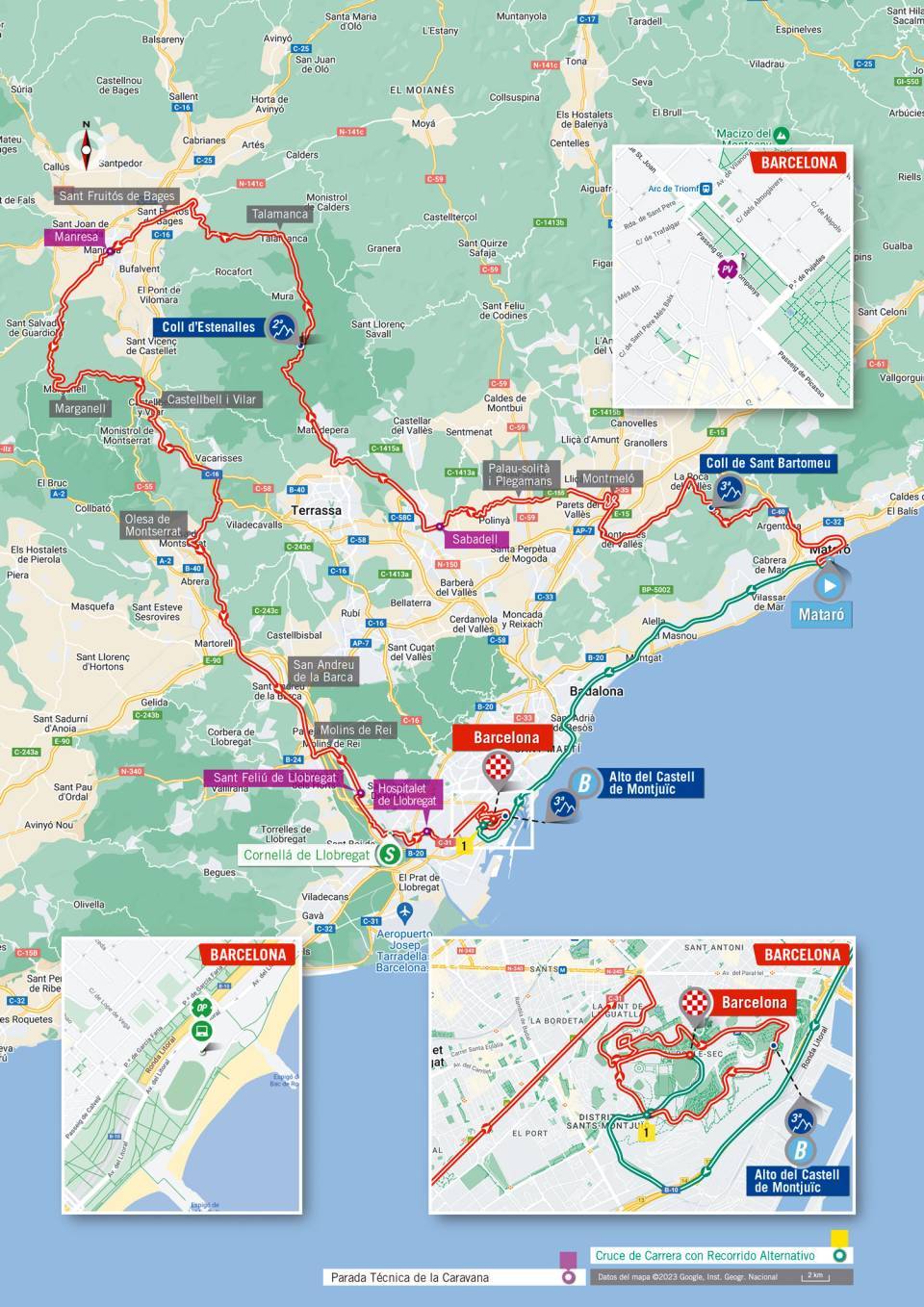
Your support helps us to tell the story
This election is still a dead heat, according to most polls. In a fight with such wafer-thin margins, we need reporters on the ground talking to the people Trump and Harris are courting. Your support allows us to keep sending journalists to the story.
The Independent is trusted by 27 million Americans from across the entire political spectrum every month. Unlike many other quality news outlets, we choose not to lock you out of our reporting and analysis with paywalls. But quality journalism must still be paid for.
Help us keep bring these critical stories to light. Your support makes all the difference.
The 2023 Vuelta a Espana is set to be a compelling battle for the red jersey as a stacked list of grand tour pedigree takes on one of the most demanding routes seen in years.
Reigning Tour de France champion Jonas Vingegaard is the favourite but winning two grand tours in two months is a difficult thing to do, and his teammate Primoz Roglic – who won the Giro d’Italia in May – will be an alternative weapon for Jumbo-Visma should Vingegaard falter. Roglic is trying to win a record-equalling fourth Vuelta of his career, having won in 2019, 2020 and 2021.
Looking to stop Jumbo-Visma from collecting a clean sweep of the year’s big three races is the reigning Vuelta champion Remco Evenepoel. The Soudal Quick-Step rider produced a dominant show in last year’s race to take hold of the red jersey early and carry it all the way to Madrid. The Belgian superstar became road race world champion two weeks later and added the time-trial world title to his collection last month, and he looks like the best bet to stop Jumbo.
Then there is Ineos with two Tour de France winners in Geraint Thomas and Egan Bernal; Enric Mas, a three-time runner-up at the Vuelta with mercurial Spanish team Movistar; fellow Spaniard Juan Ayuso, the 20-year-old who finished third last year; and Ayuso’s UAE Emirates teammate Joao Almeida is also one to watch.
Here is our stage-by-stage guide to the 2023 Vuelta.
Stage 1: Saturday 26 August, Barcelona – Barcelona, (14.8km TTT)
The 2023 Veulta starts with a team time-trial, always a tricky technical challenge that requires skill to keep all eight riders in a unit on a circuit that contains some tight corners. Jumbo-Visma are the favourites.
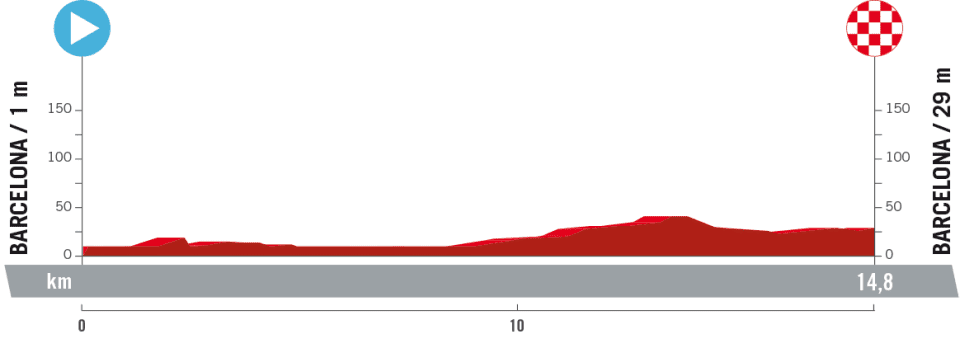
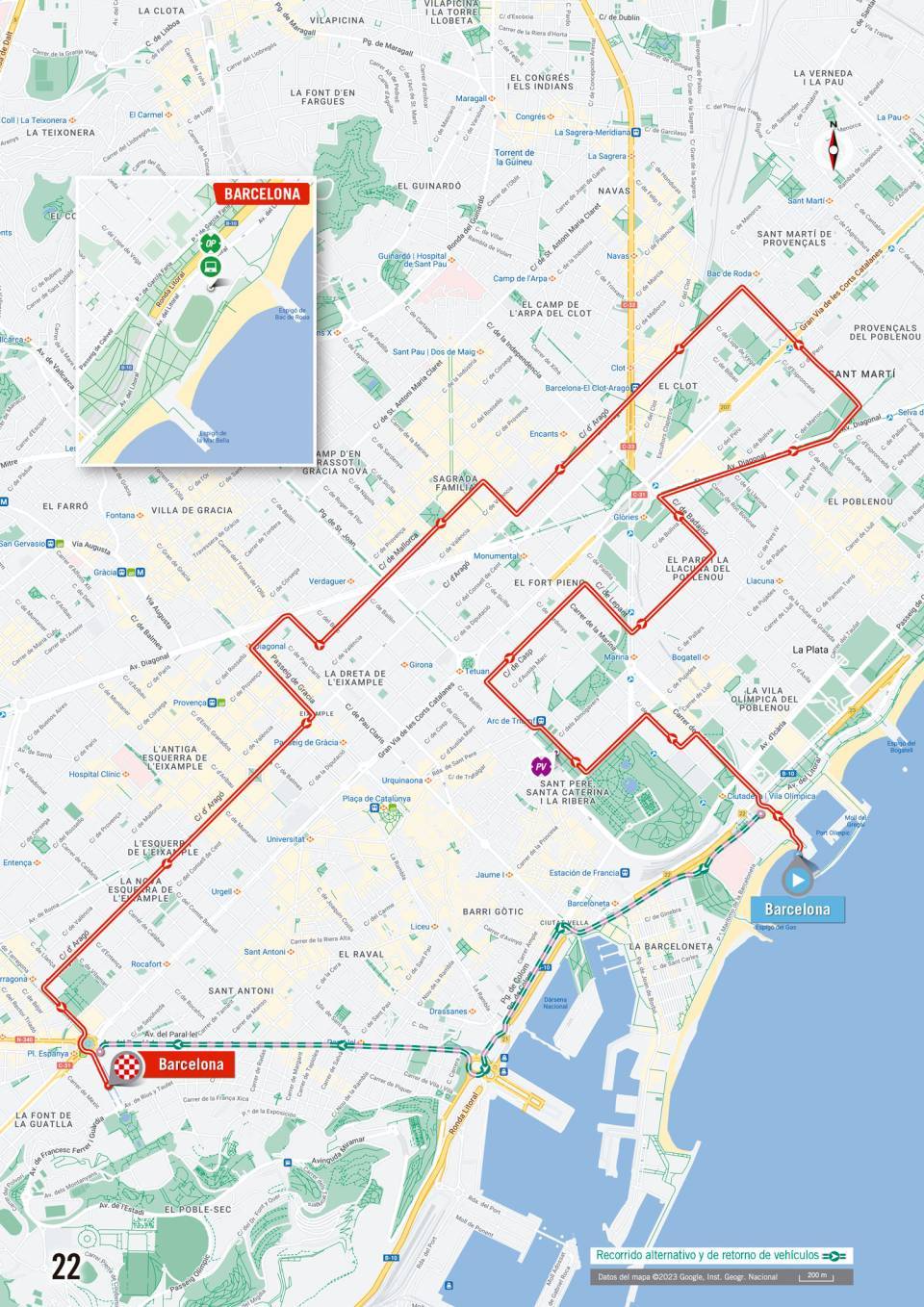
Stage 2: Sunday 27 August, Mataro – Barcelona (182km)
The hard opening week kicks in with three categorised climbs and an uphill finish in Barcelona.
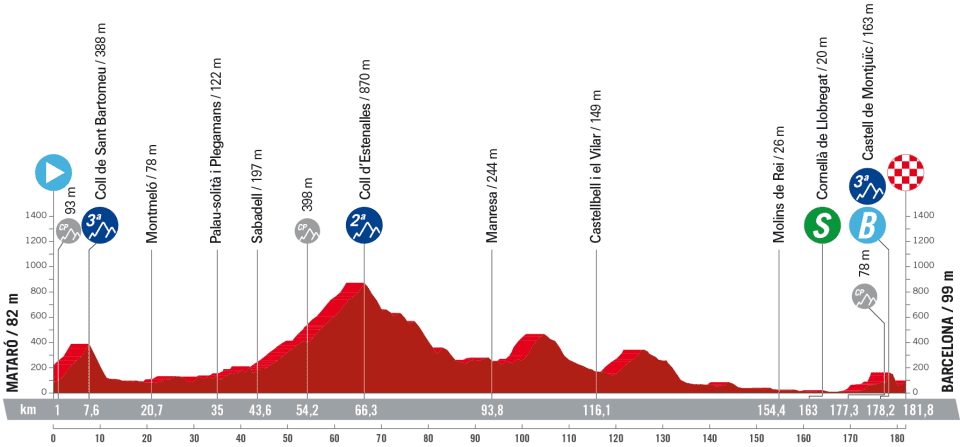

Stage 3: Monday 28 August, Suria – Arinsal (158.5km)
A first test of the strength of the big general classification contenders as the race heads up to Andorra, and a sense of whether Jonas Vingegaard is in top form so soon after winning a gruelling Tour de France.
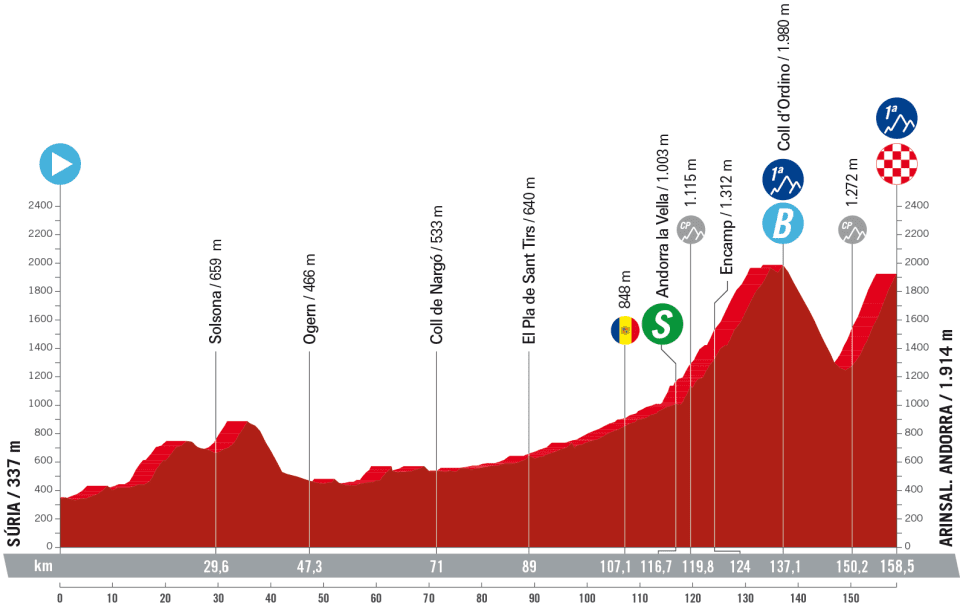
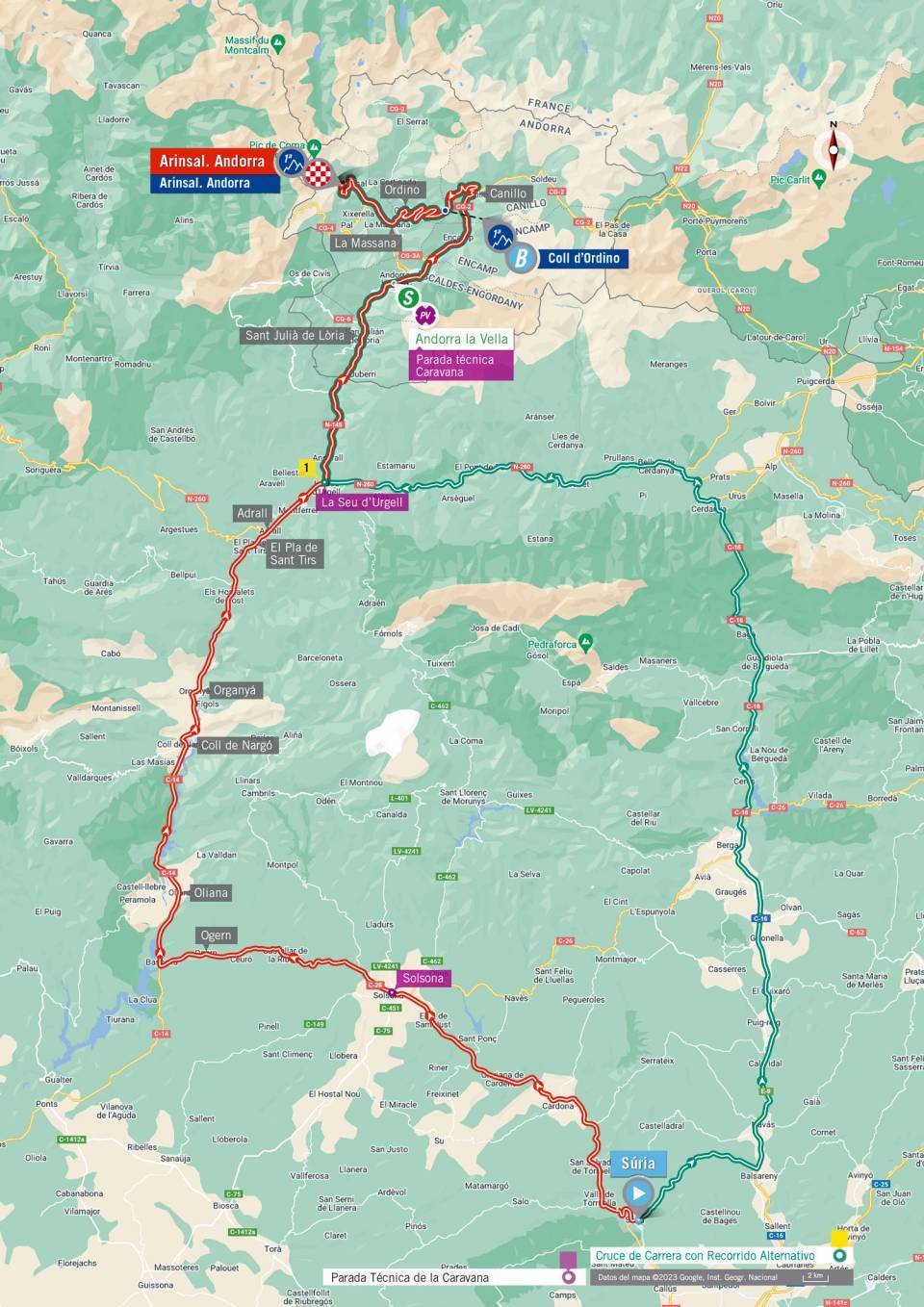
Stage 4: Tuesday 29 August, Andorra la Vella – Tarragona (183.5km)
A flatter day – though not flat – is one of only four opportinities for the sprinters on this tour, although the sprinting pool is pretty shallow so some of these sprint days could be hijacked by the breakaway.
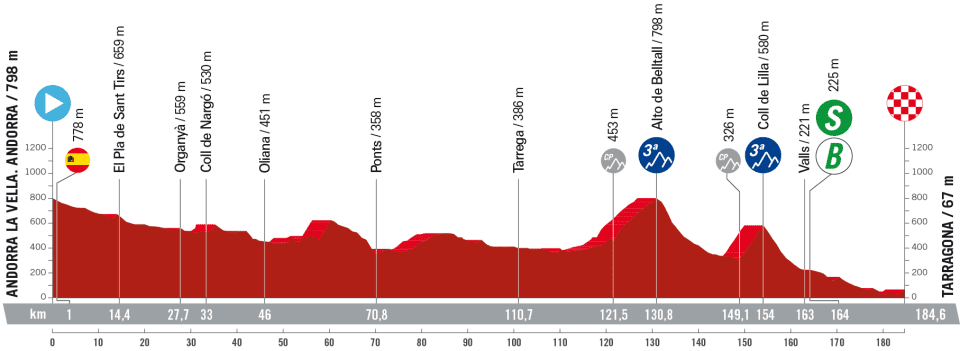
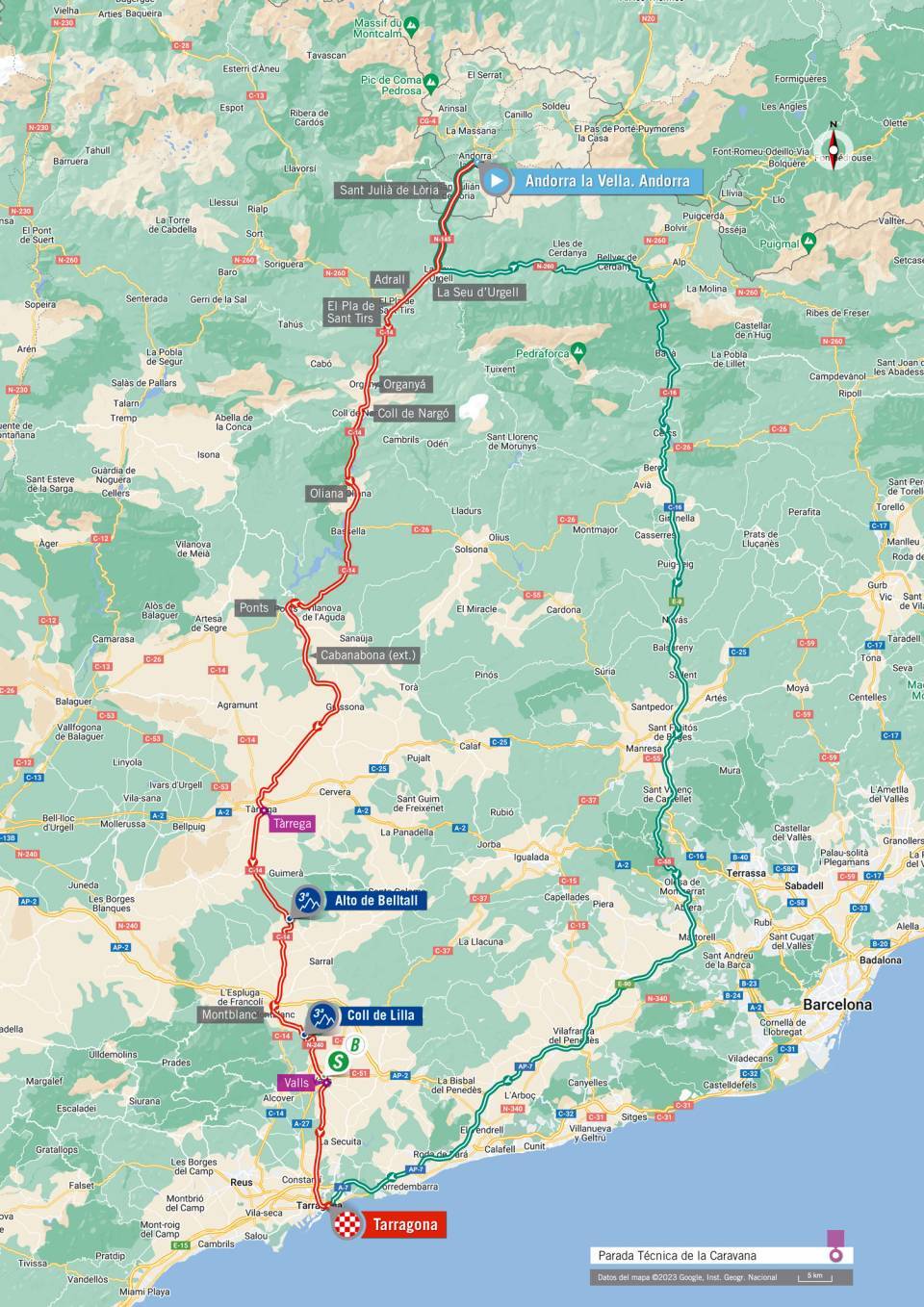
Stage 5: Wednesday 30 August, Morella – Burriana (186.5km)
Another sprint day, by name, but the category two climb that lurks near the finish in Burriana could push some of the fast men out of the back of the peloton if the pace is high.
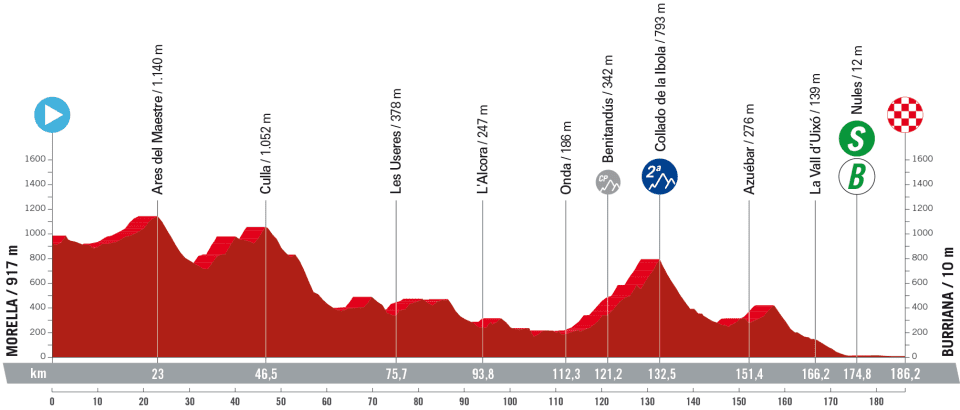
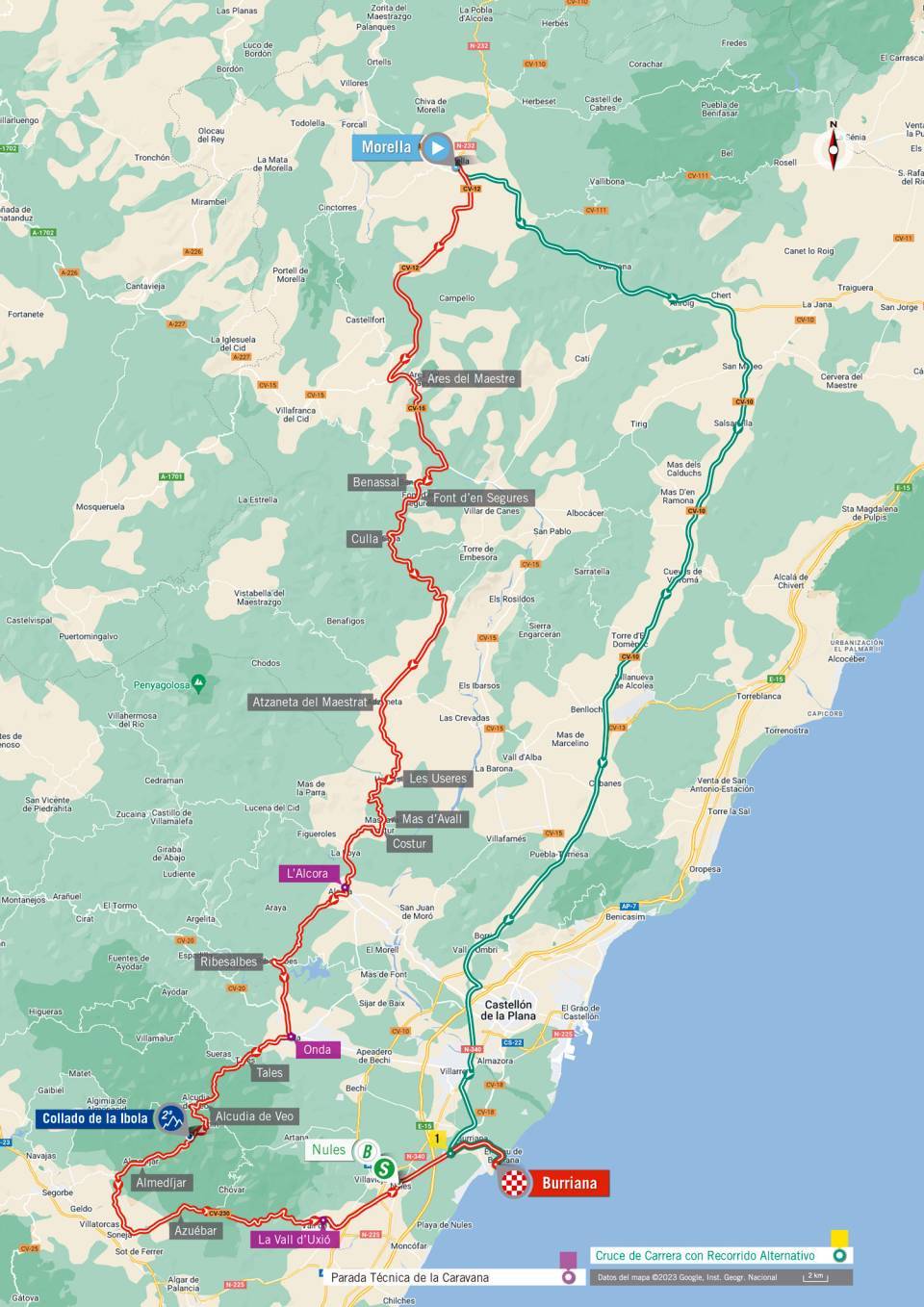
Stage 6: Thursday 31 August, La Vall d’Uixo – Pico del Buitre (183.5km)
The first summit finish of the Vuelta is atop the brutally steep Pico del Buitre (10.9km at 8%), which consistently reaches 15% in some sections.
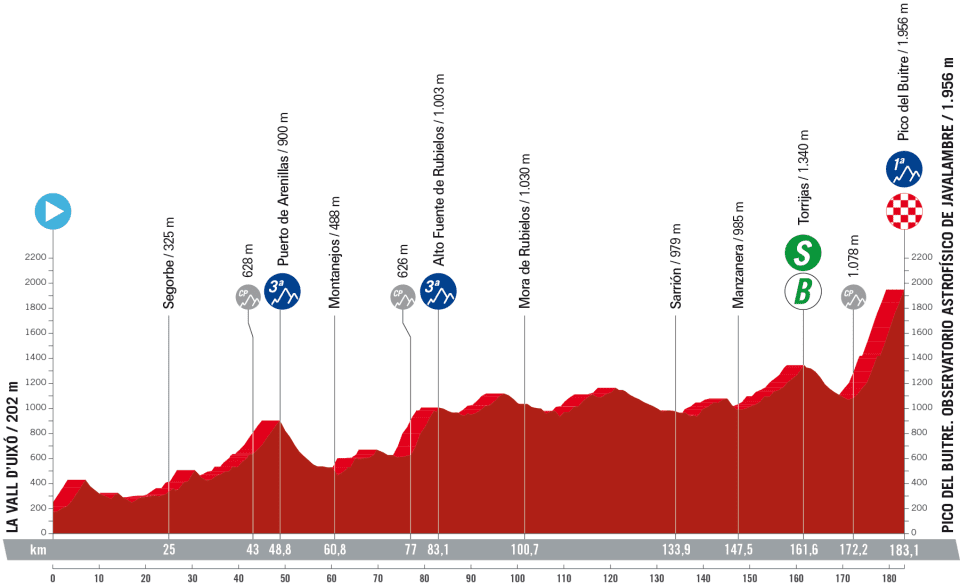
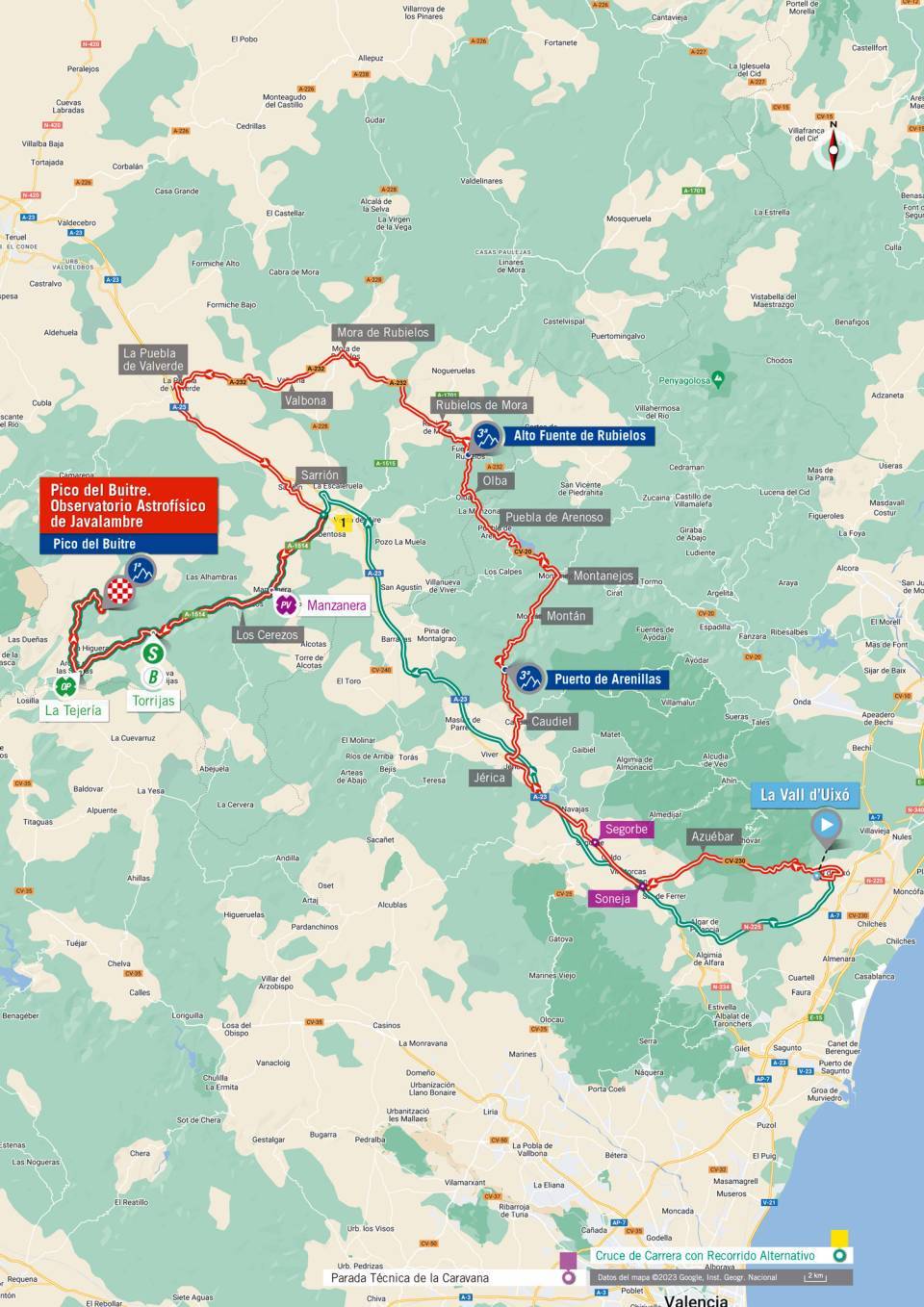
Stage 7: Friday 1 September, Utiel – Oliva (201km)
A flat day for the sprinters in the pack and perhaps a chance for the top GC riders to recover after some tough climbing.

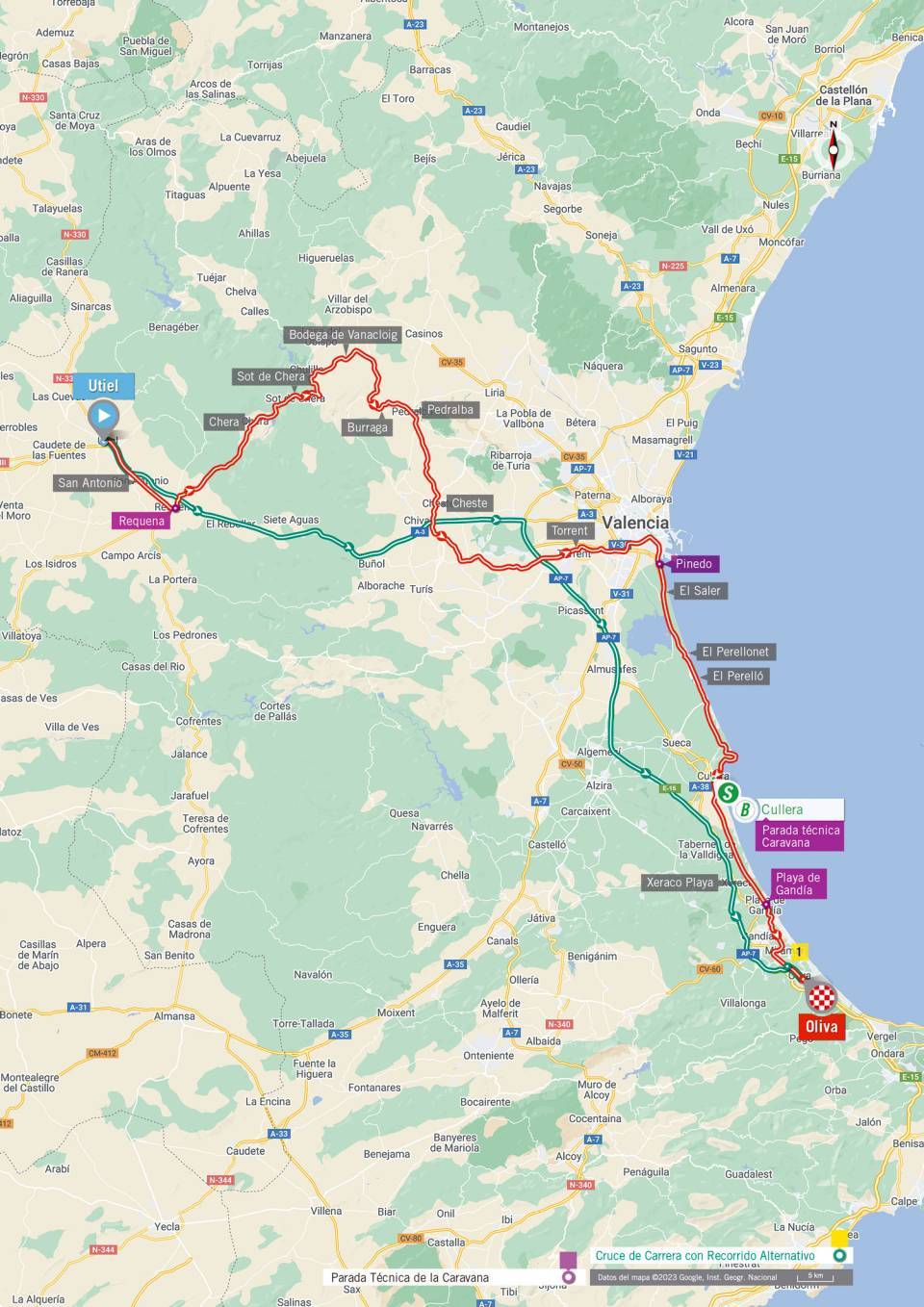
Stage 8: Saturday 2nd September, Denia – Xorret de Cati (165km)
A rolling day through the Valencia region but the steep category one Xorret de Cati near the finish (3.9km at 11.4%) will demand climber’s legs of its stage winner.
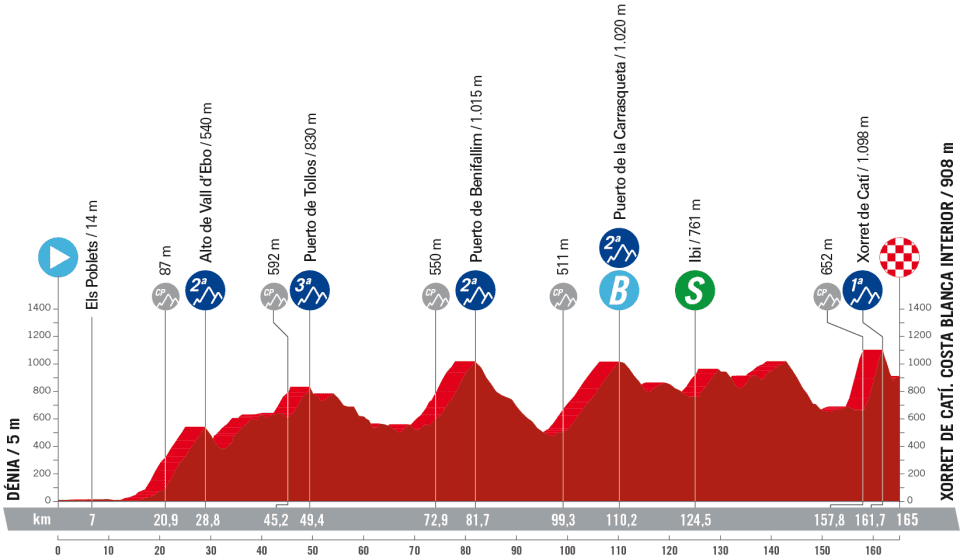
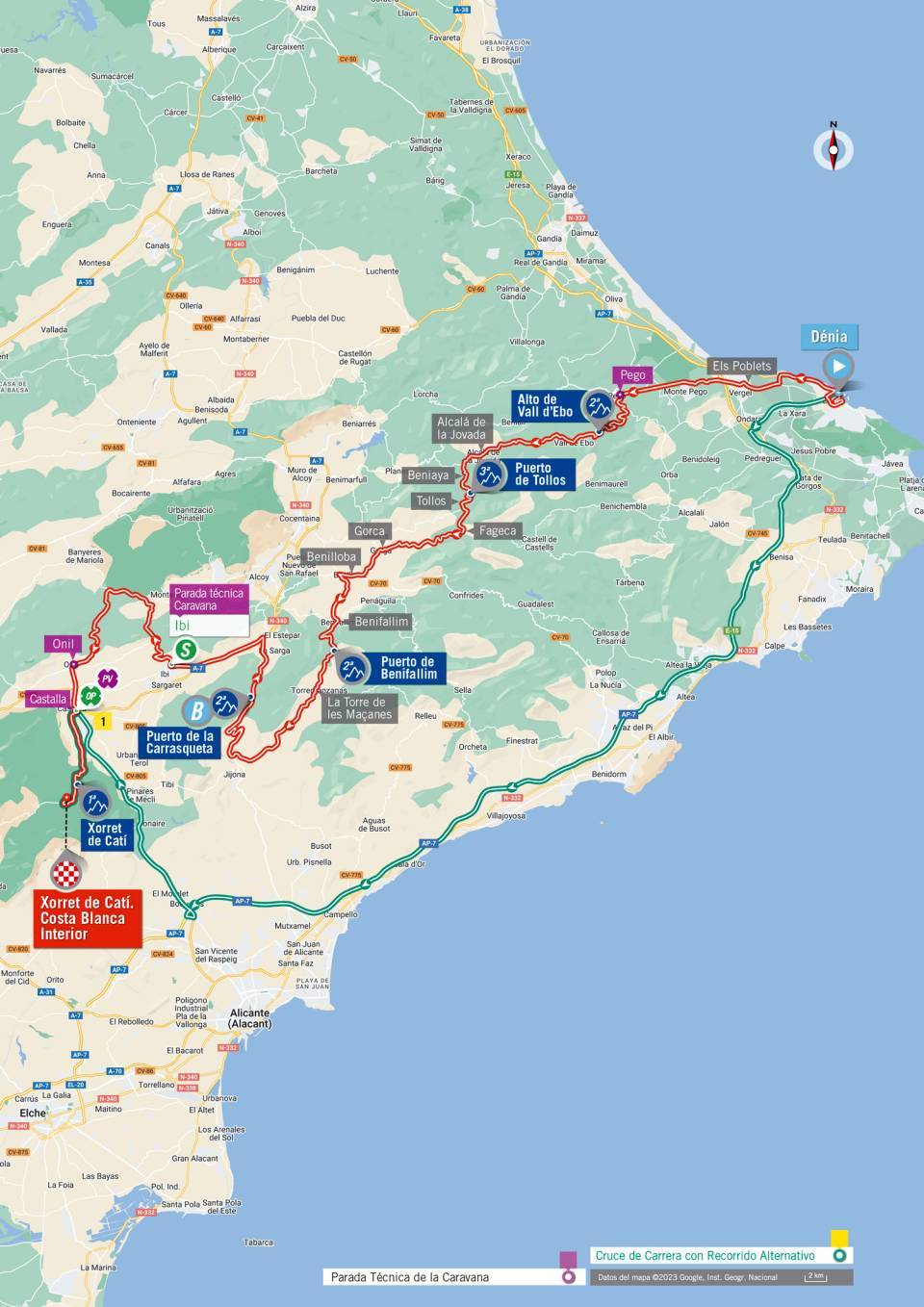
Stage 9: Sunday 3 September, Cartagena – Collado de la Cruz de Caravaca (184.5km)
The race will be decided on the ‘steps’ that precede the finish: a series of short plateaus followed by sharp inclines riding up the Alto Caravaca de la Cruz (8.2km at 5.5%).
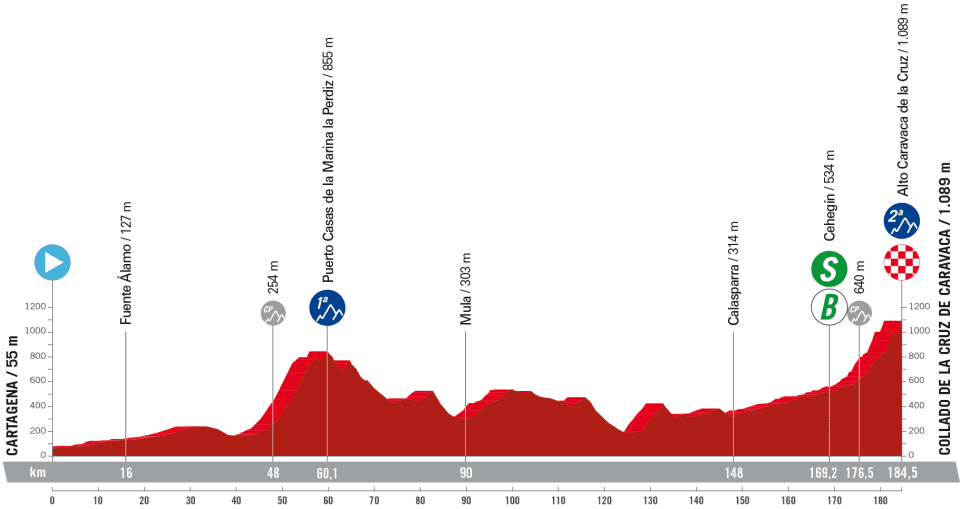
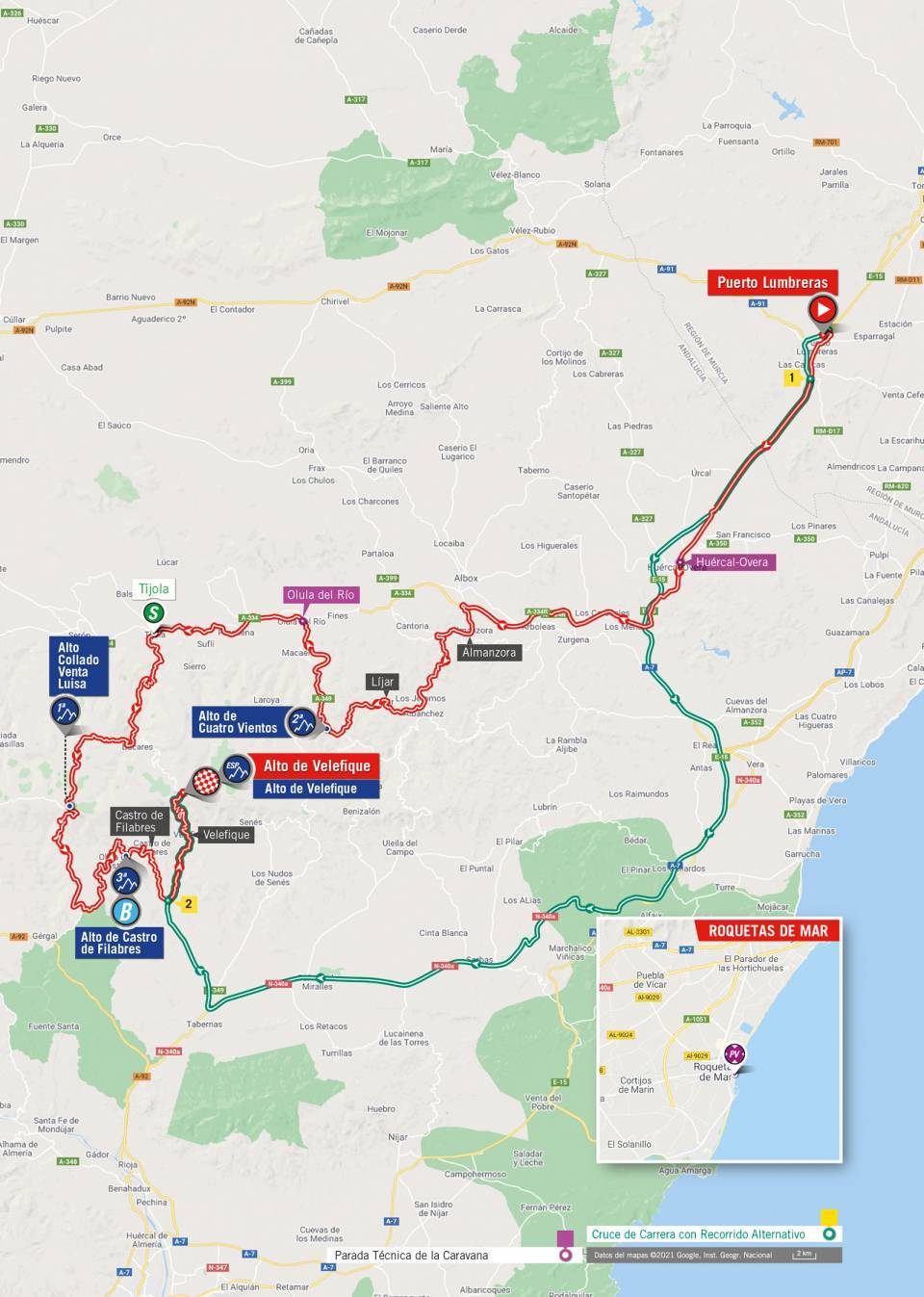
Stage 10: Tuesday 5 September, Valladolid – Valladolid (25.8km ITT)
After the first rest day, the riders return for an individual time-trial which should be thrilling to watch. Remco Evenepoel is the new time-trial world champion but Jonas Vingegaard was sensational at the Tour, and there are plenty of other talented riders against the clock, not least Ineos’s Filippo Ganna, a two-time time-trial world champion himself.
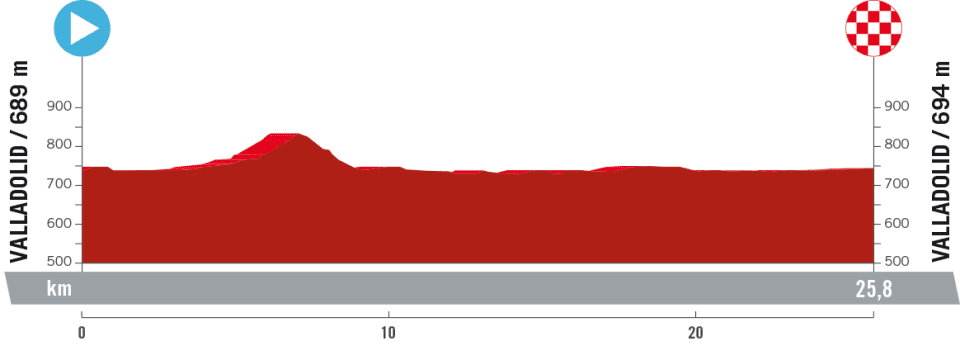
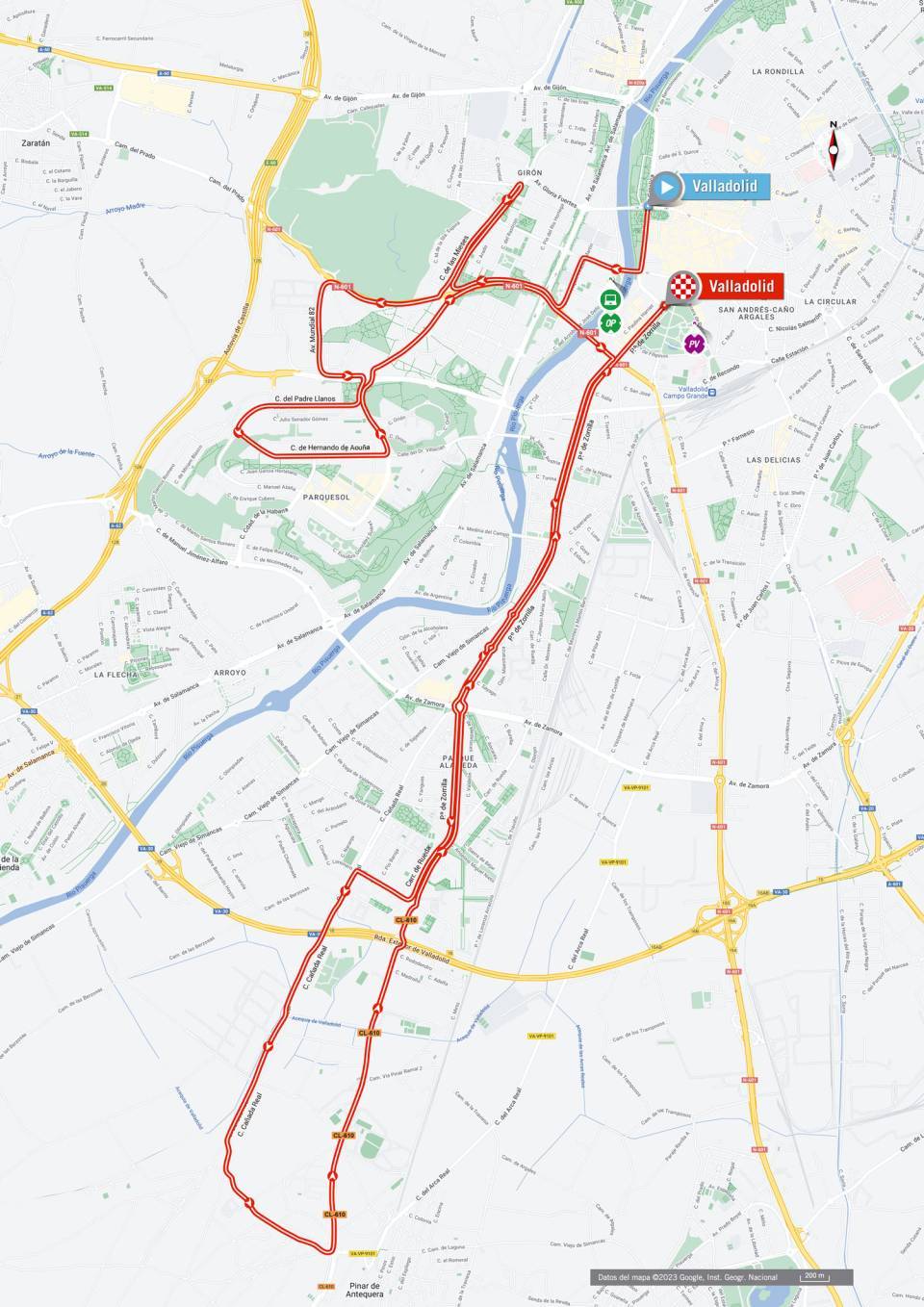
Stage 11: Wednesday 6 September, Lerma – La Laguna Negra (163.5km)
A flat day with another steep finish upon La Laguna Negra (6.5km at 6.8%) which should suit a breakaway.
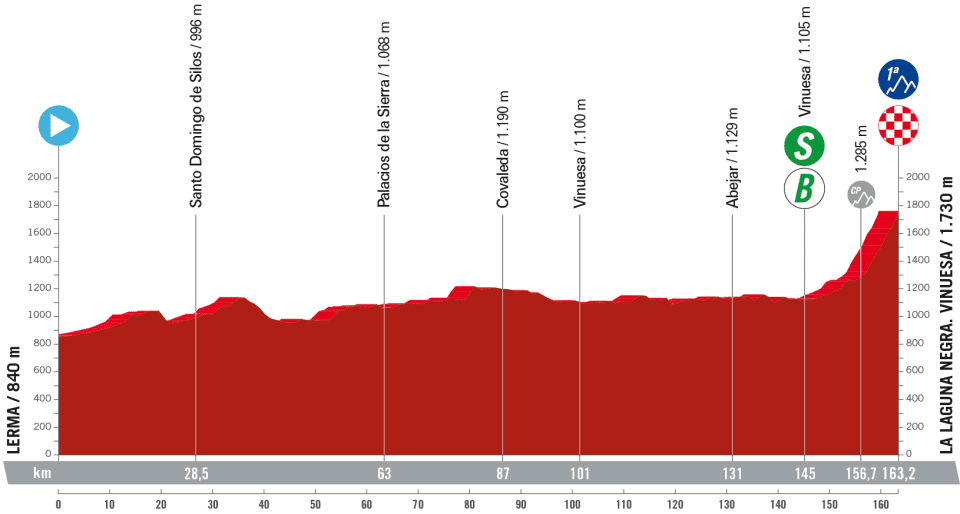
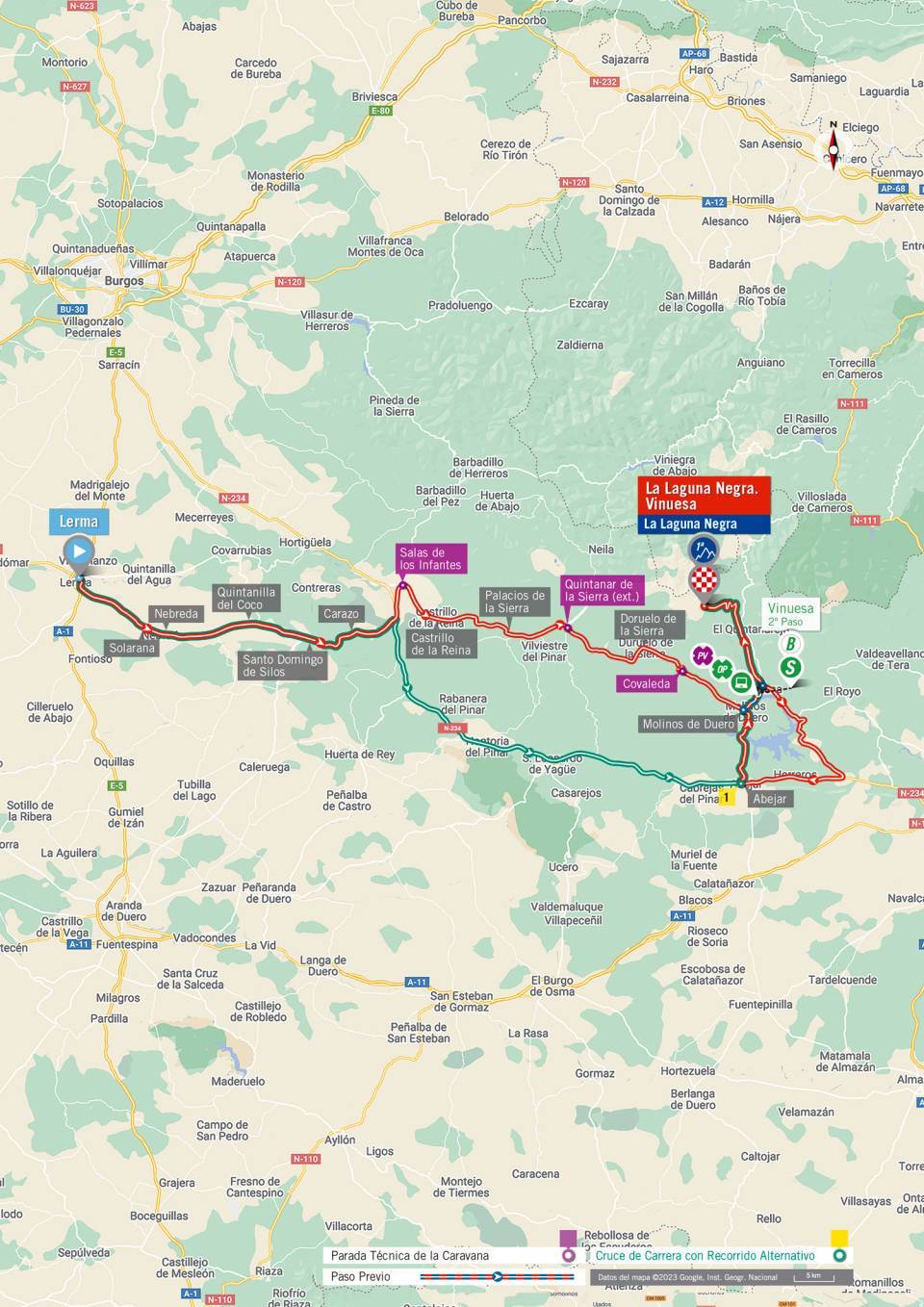
Stage 12: Thursday 7 September, Olvega – Zaragoza (151km)
A rare visit to Zaragoza is likely to end in a bunch sprint.
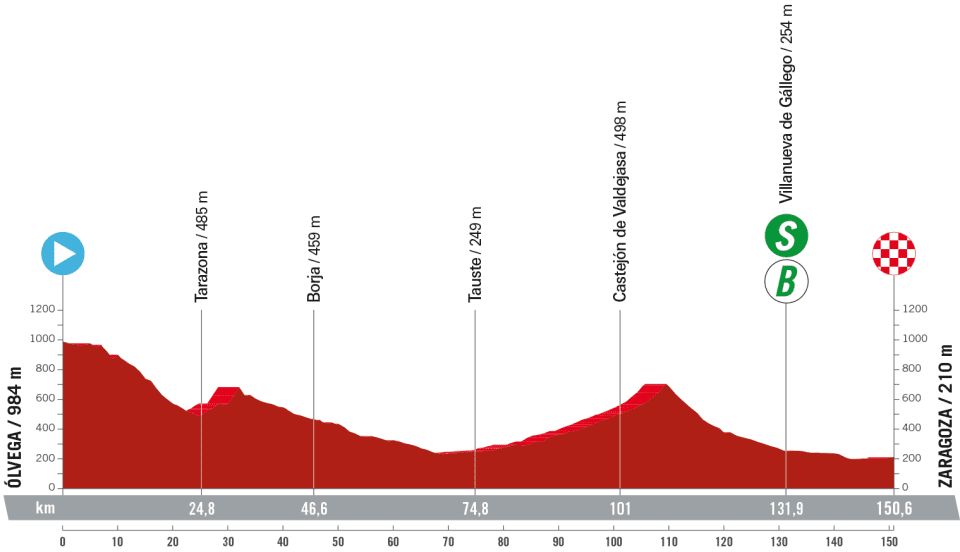
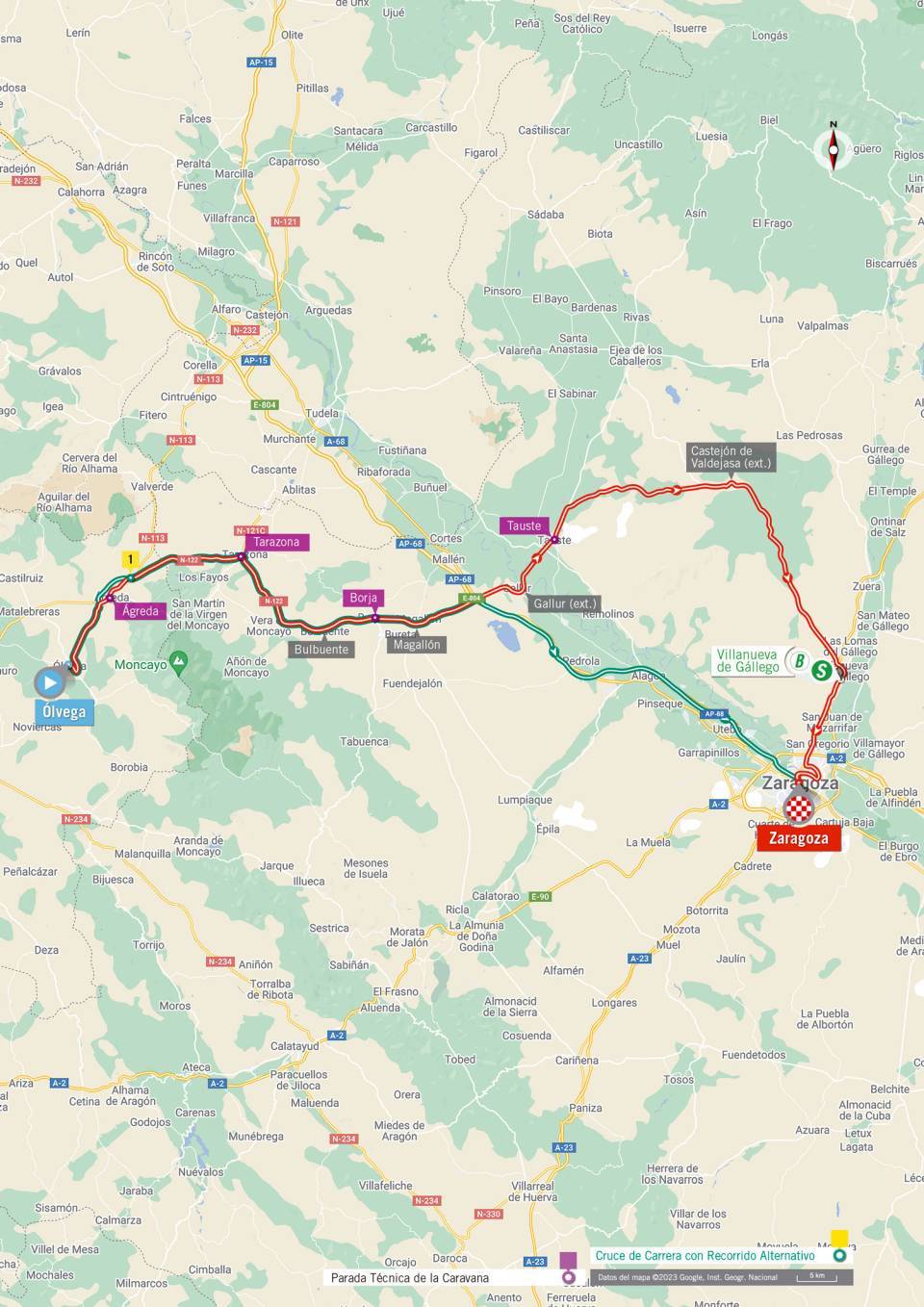
Stage 13: Friday 8 September, Formigal – Col du Tourmalet (135km)
This image below speaks for itself for the Vuelta’s queen stage: a brute of a day spent almost entirely in France culminating on the famous Tourmalet (18.9km at 7.4%).
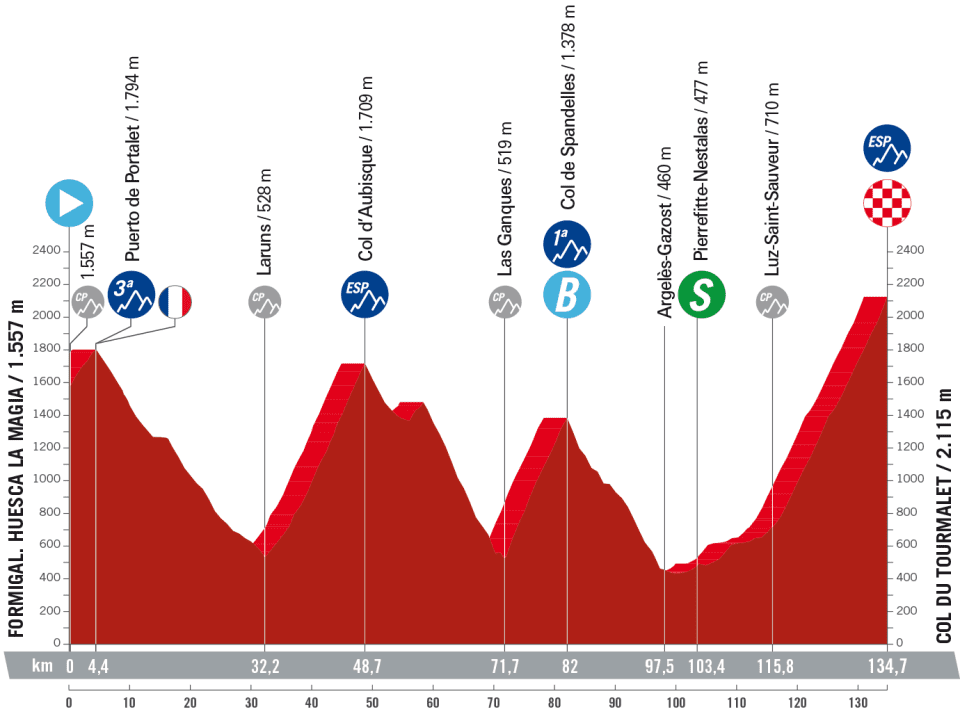
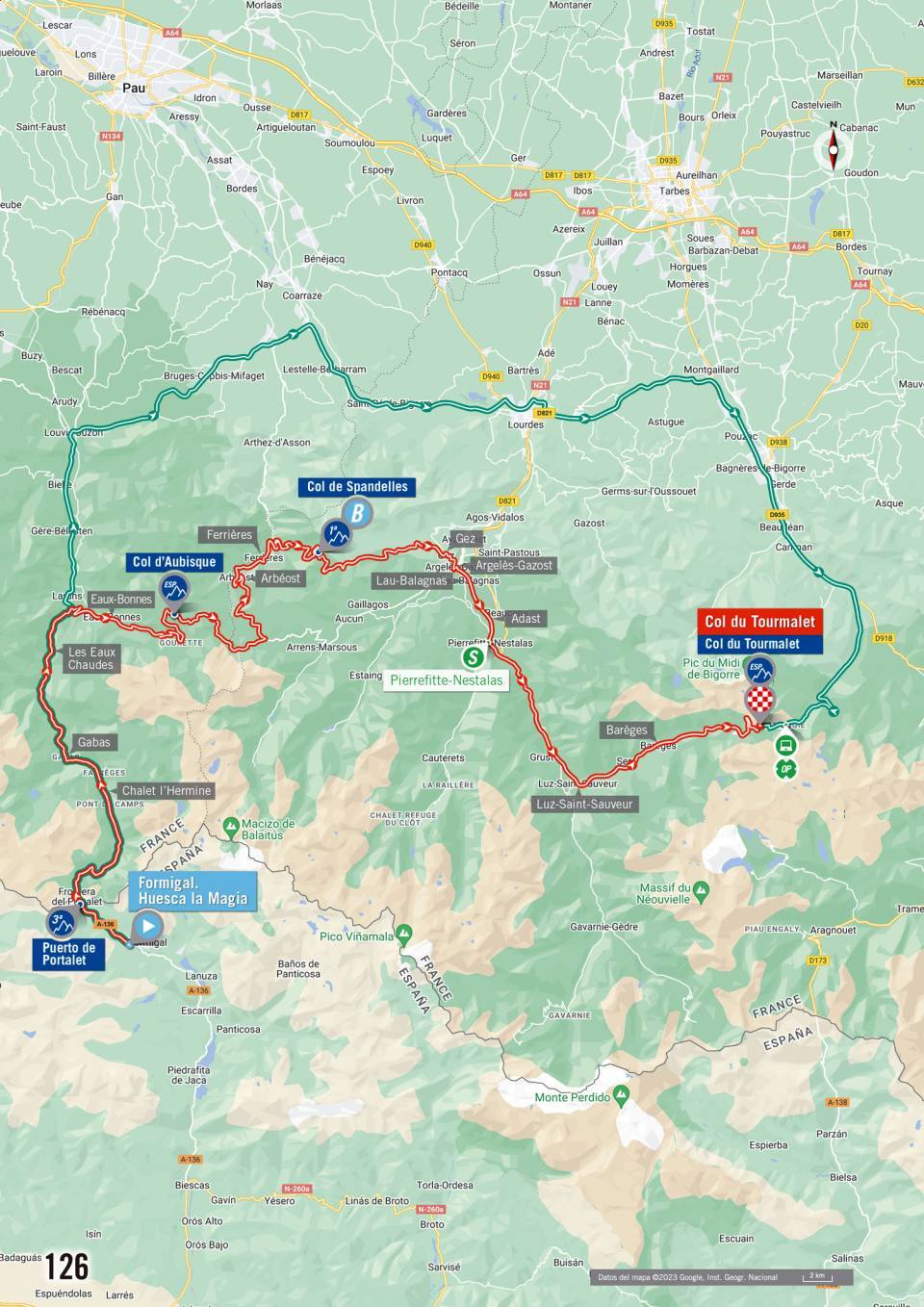
Stage 14: Saturday 9 September, Sauveterre-de-Bearn – Larra-Belagua (156.5km)
Another hard climbing day awaits, and that’s before the summit finish on the Puerto de Belagua (9.5km at 6.3%).
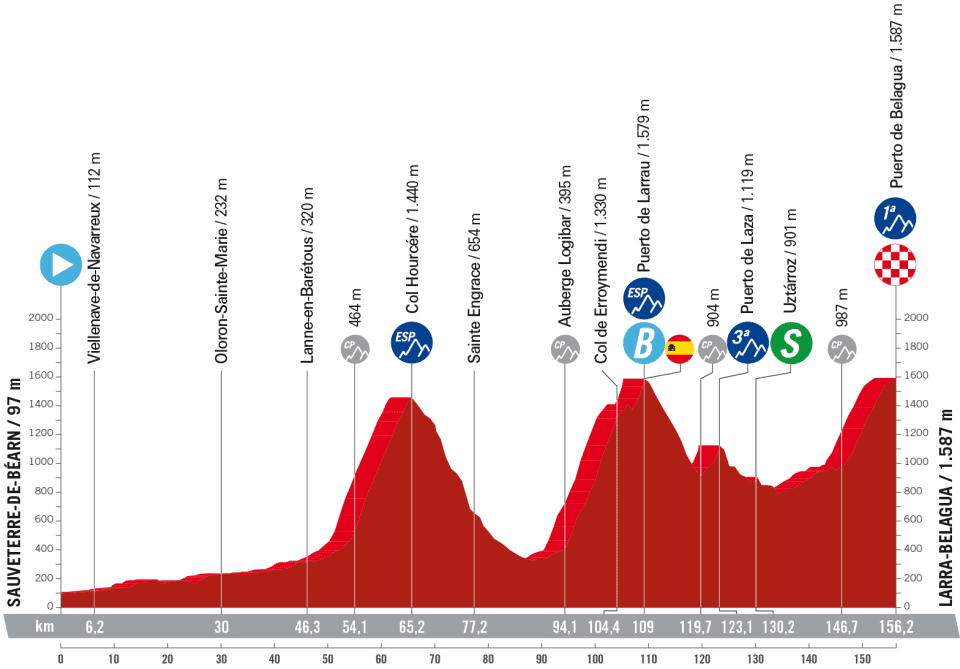
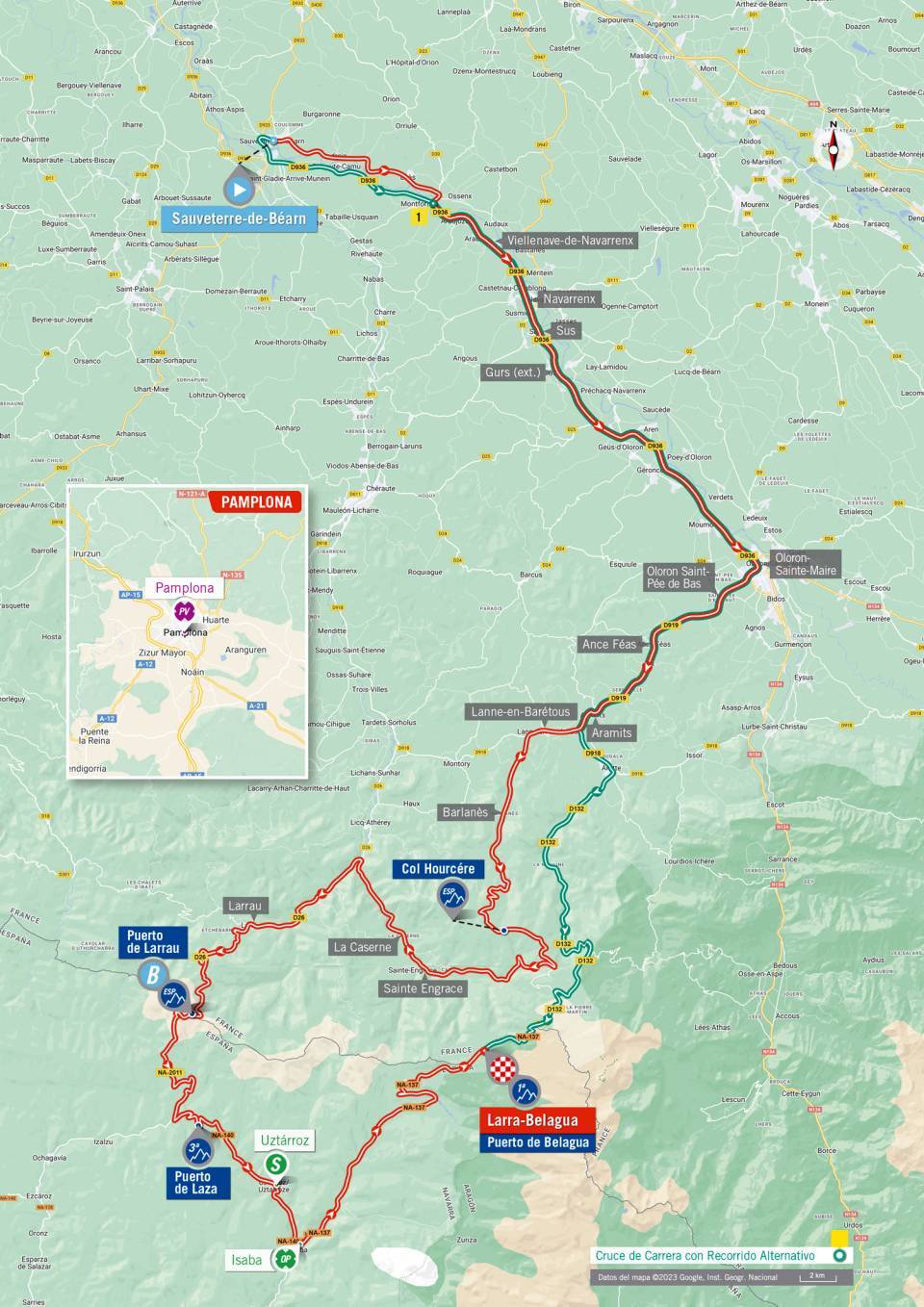
Stage 15: Sunday 10 September, Pamplona – Lekunberri (158.5km)
Starting in the city famous for its Running of the Bulls, a hilly route to Lekunberri will suit the puncheurs in the peloton.
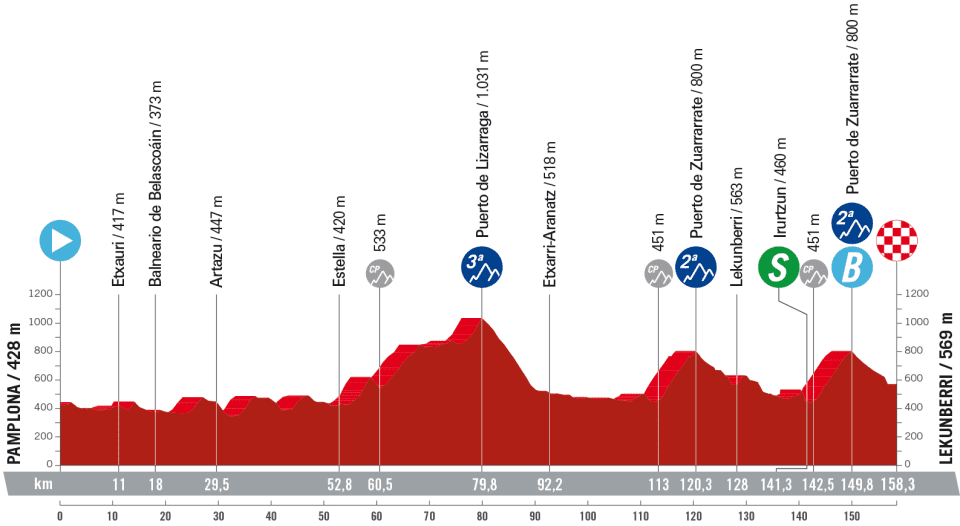
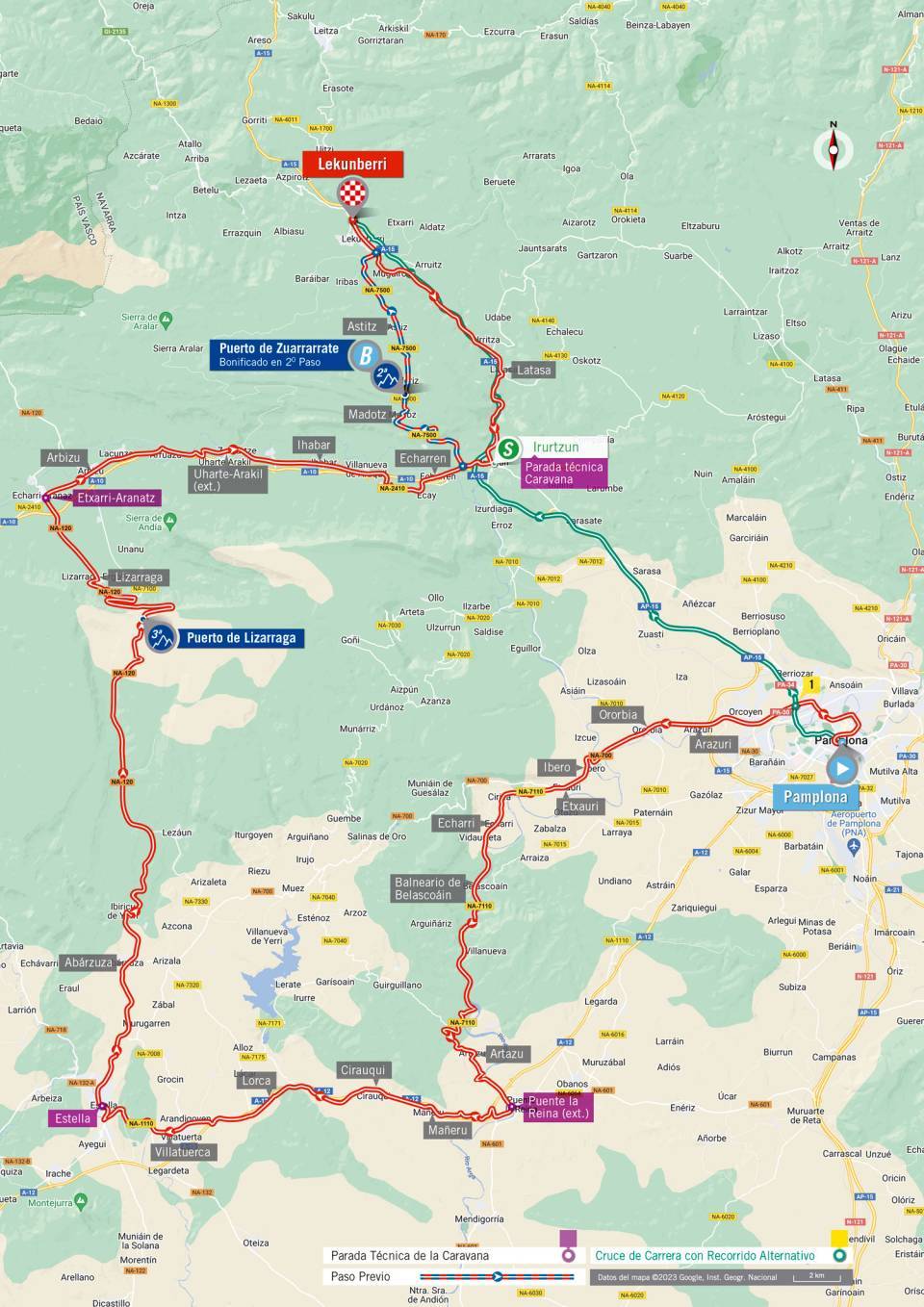
Stage 16: Tuesday 12 September, Liencres Playa – Bejes (120.5km)
A short stage which runs along the Bay of Biscay coastline and turns south before a steep climb to the finish in the small town of Bejes.
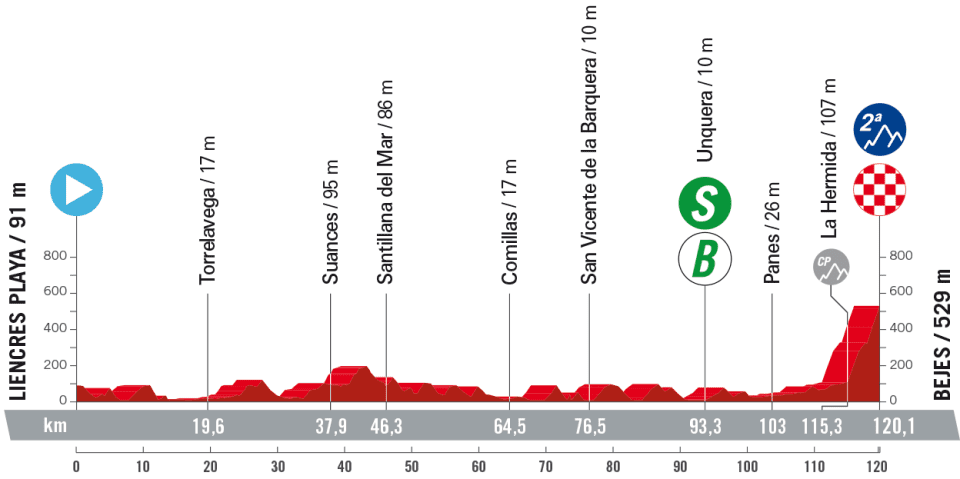
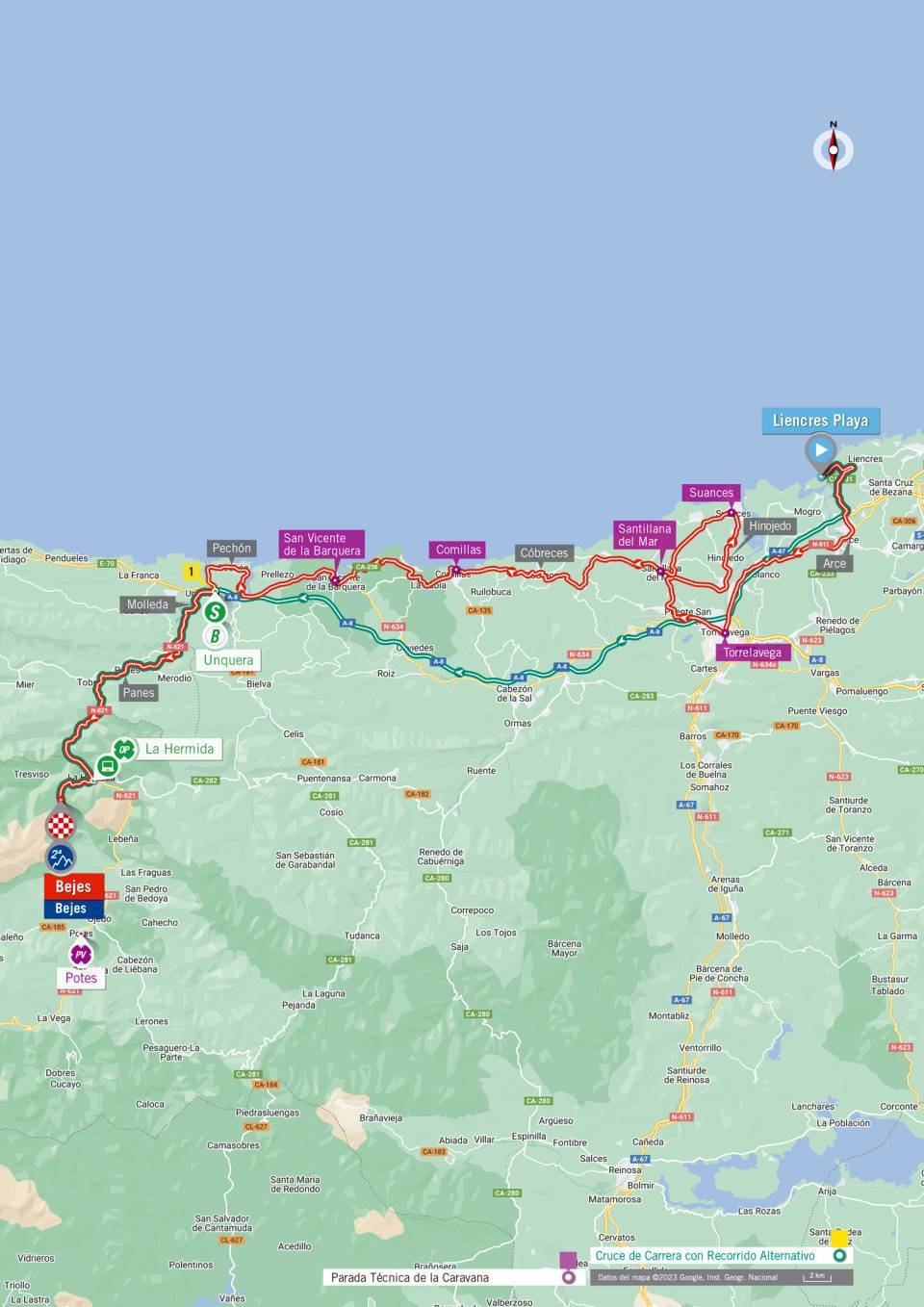
Stage 17: Wednesday 13 September, Ribadesella – Altu de l’Angliru (124.5km)
It’s not long but stage 17 is set to be one of the toughest days with a demanding finish atop the Angliru (12.4km at 9.8%) which features a final section averaging a leg-burning 24% gradient named Cuena les Cabres – the goat road.
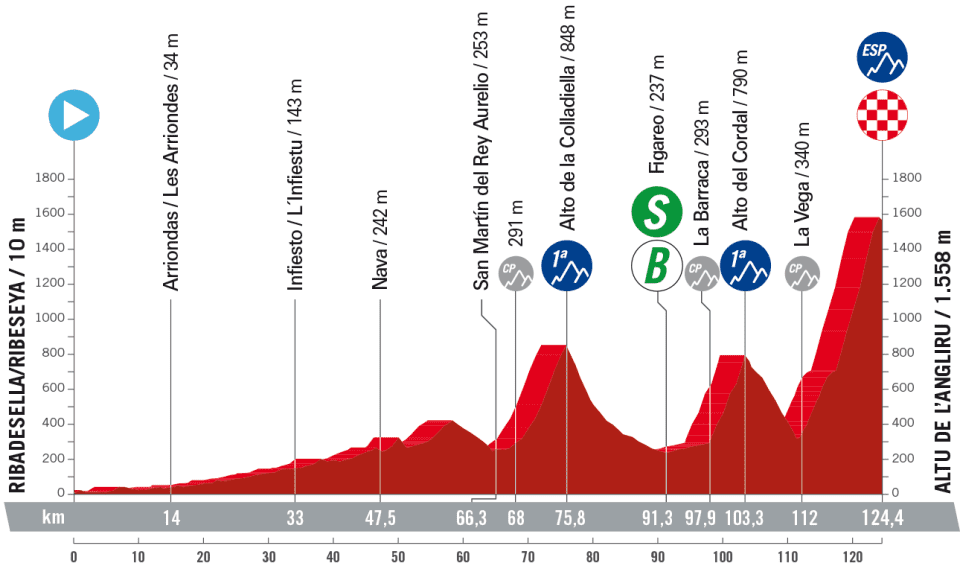
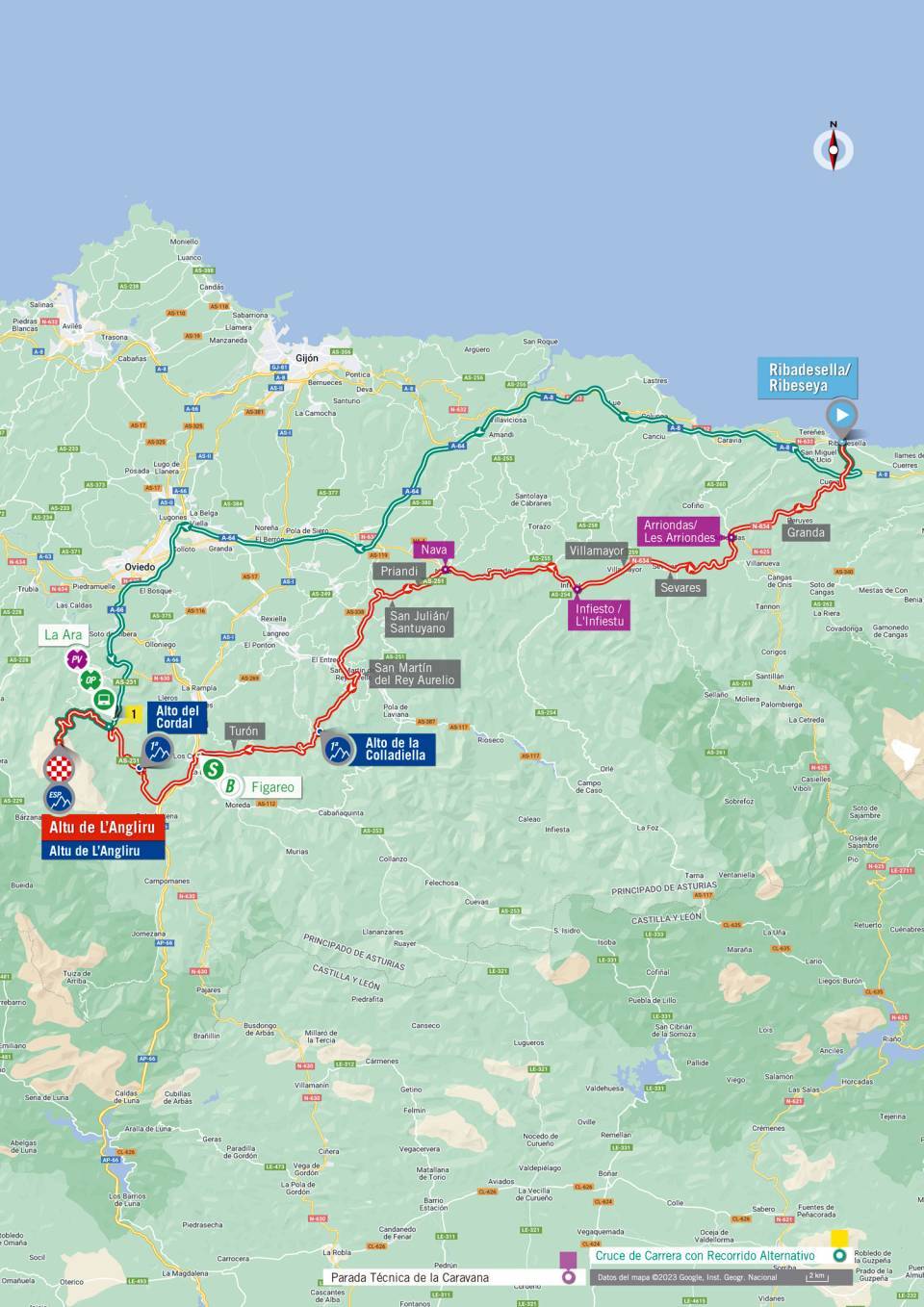
Stage 18: Thursday 14 September, Pola de Allande – La Cruz de Linares (179km)
Another hard day in the saddle features three category one climbs including back-to-back ascents of the Puerto de la Cruz de Linares (8.3km at 8.6%), where the finish line awaits.
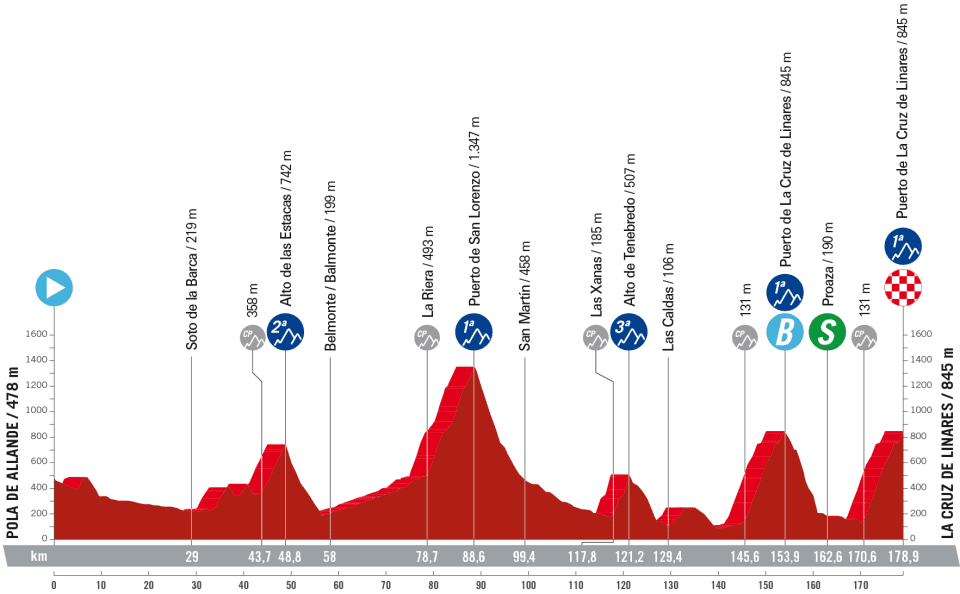
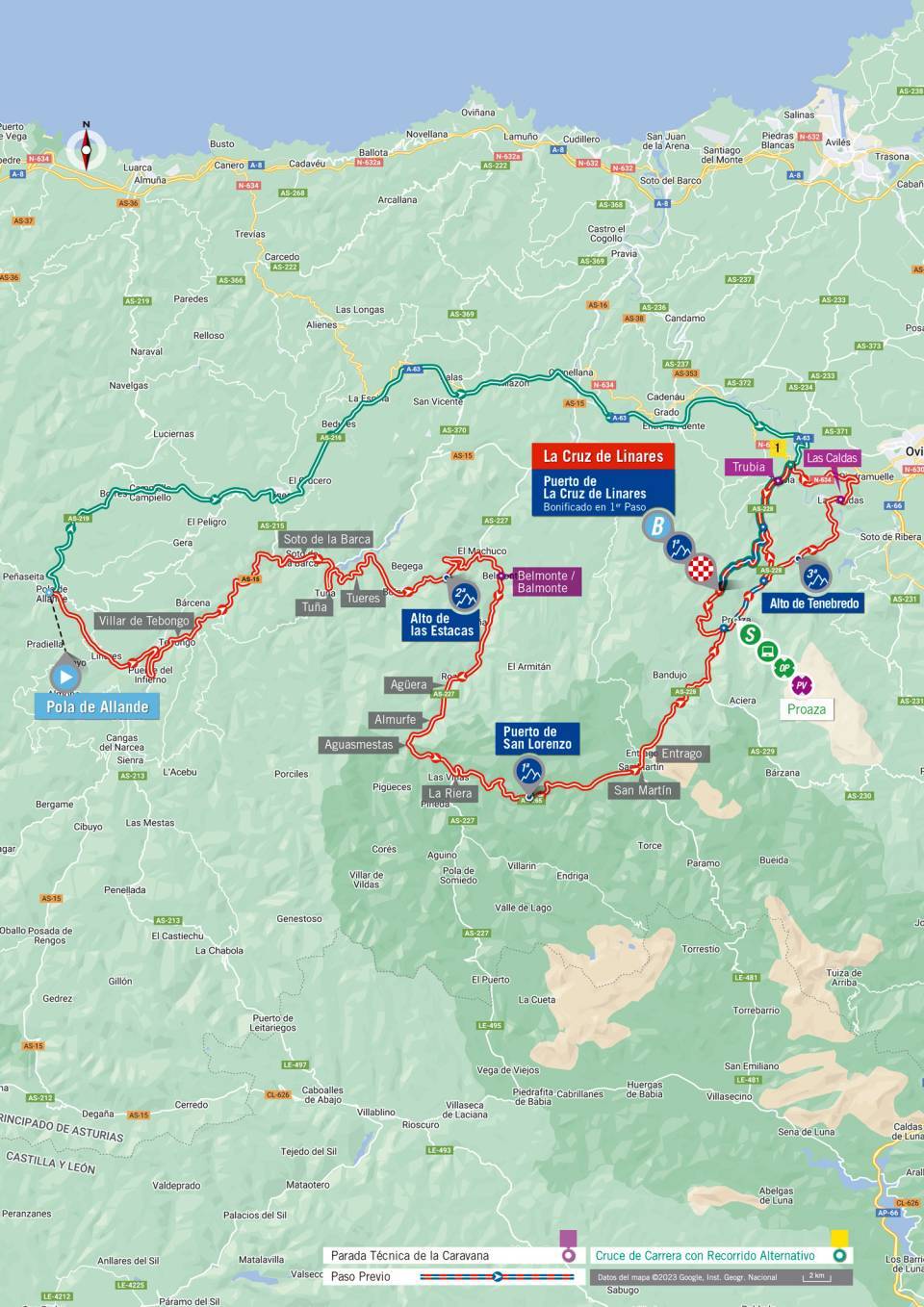
Stage 19: Friday 15 September, La Baneza – Iscar (177.5km)
A flat day that will be welcomed by any sprinters left in the pack, though don’t discount a breakaway trying to steal the stage.
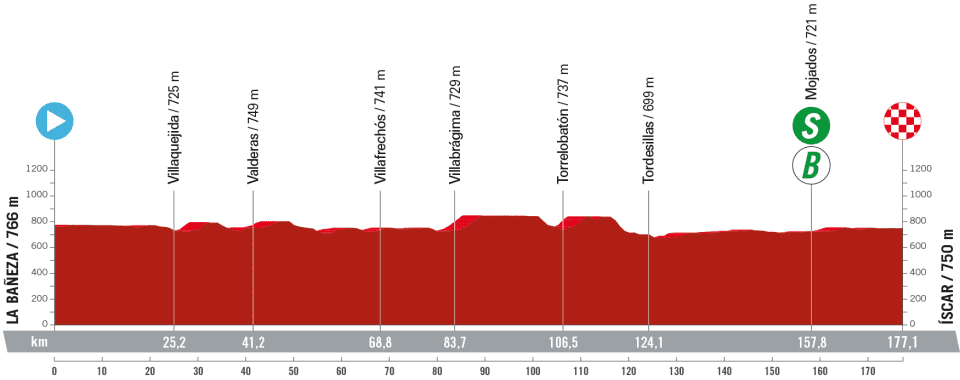
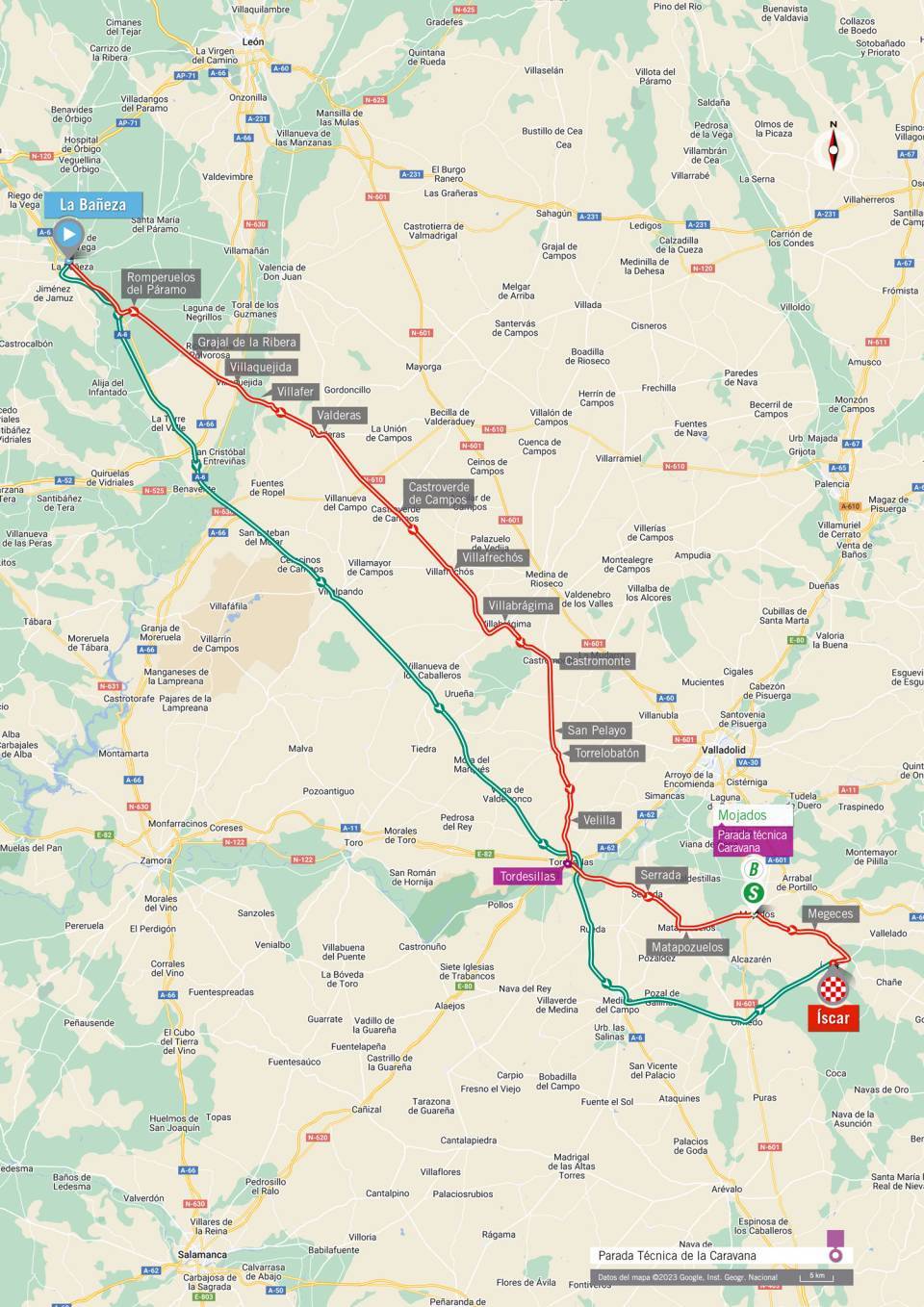
Stage 20: Saturday 16 September, Manzanares El Real – Guadarrama, (208km)
The printer didn’t have an episode: this really is stage 20 of La Vuelta, a rolling, repetitive 208km in the hills to the north-west of Madrid, and one final chance to battle.
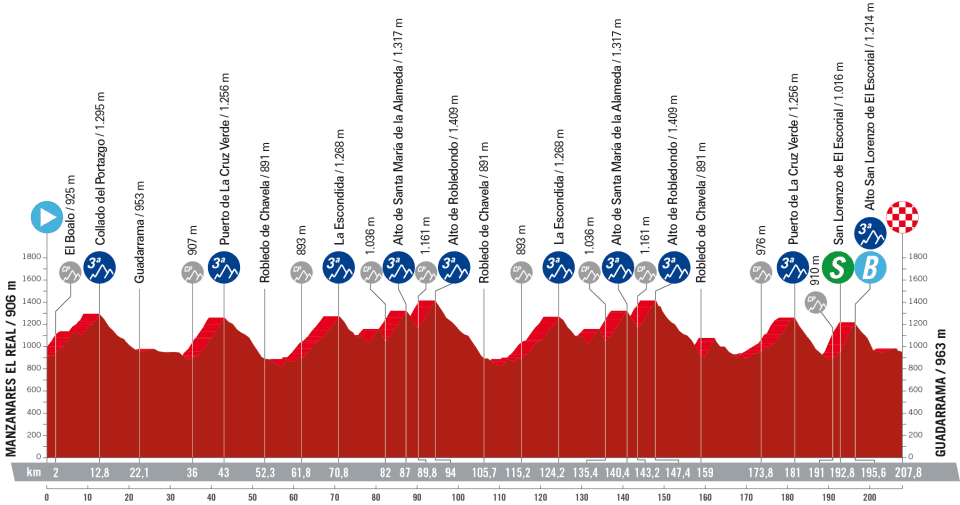
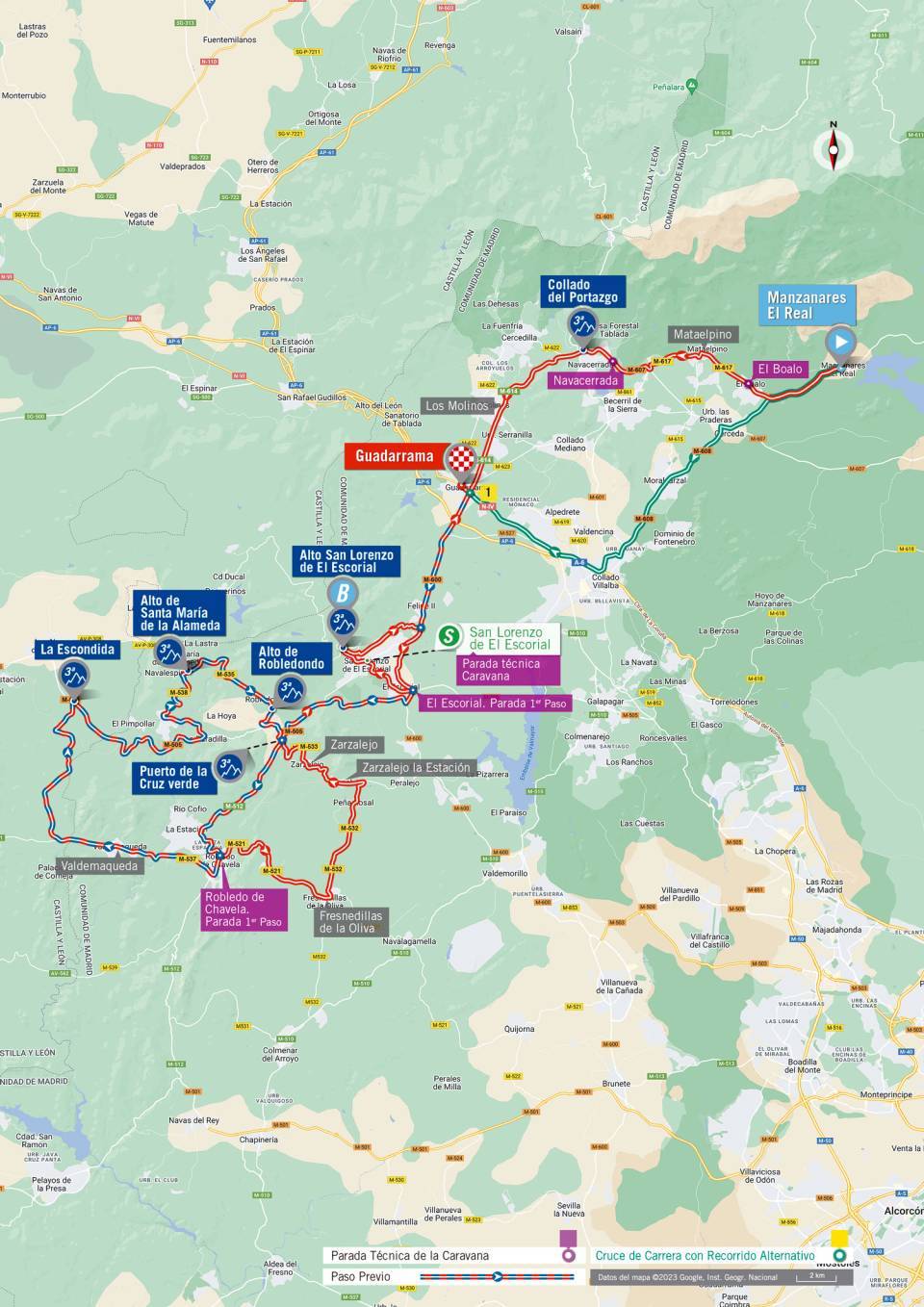
Stage 21: Sunday 17 September, Hipodromo de la Zarzuela – Madrid (101.5km)
Ten laps of the street circuit in Madrid close out the 2023 Vuelta a Espana.
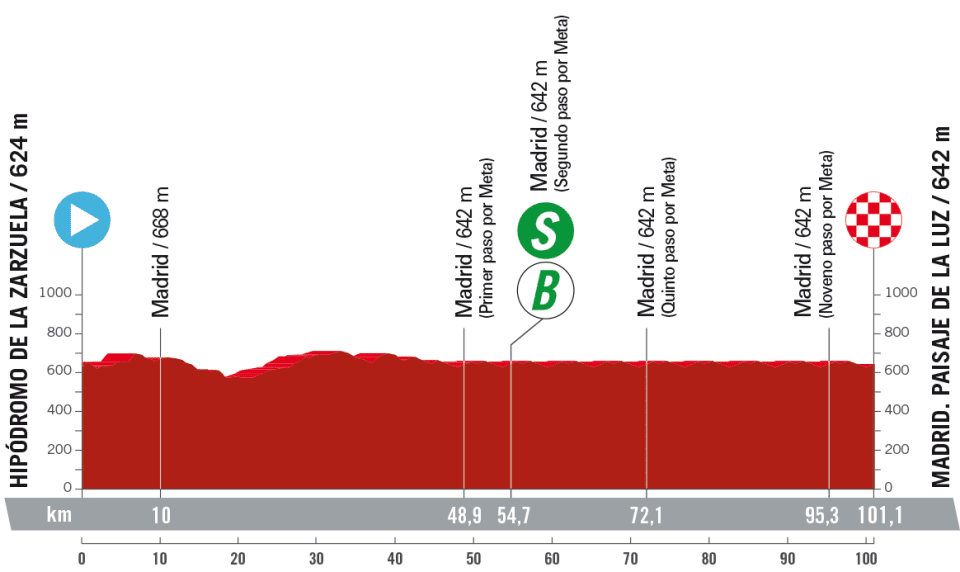
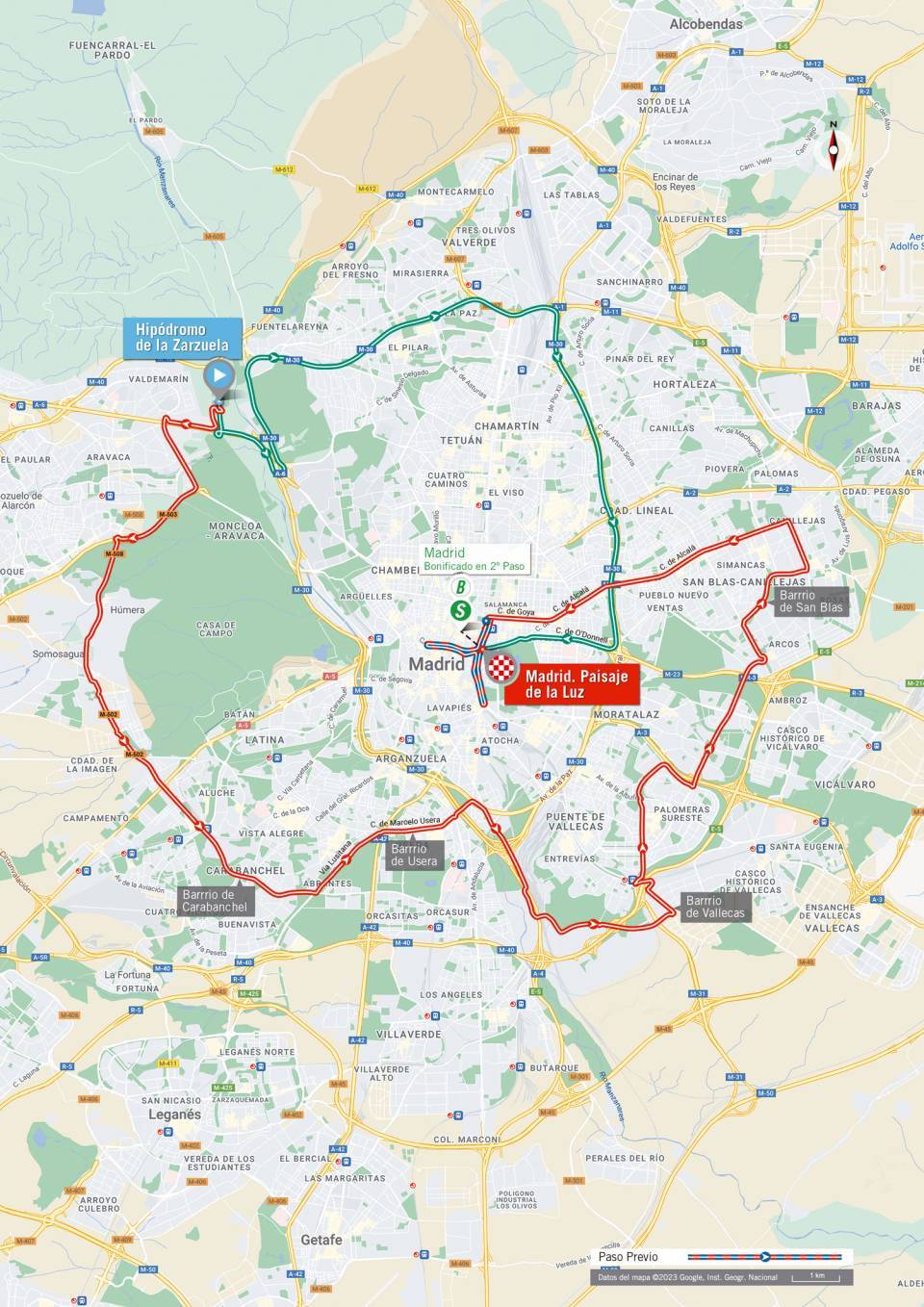
Join our commenting forum
Join thought-provoking conversations, follow other Independent readers and see their replies
Comments